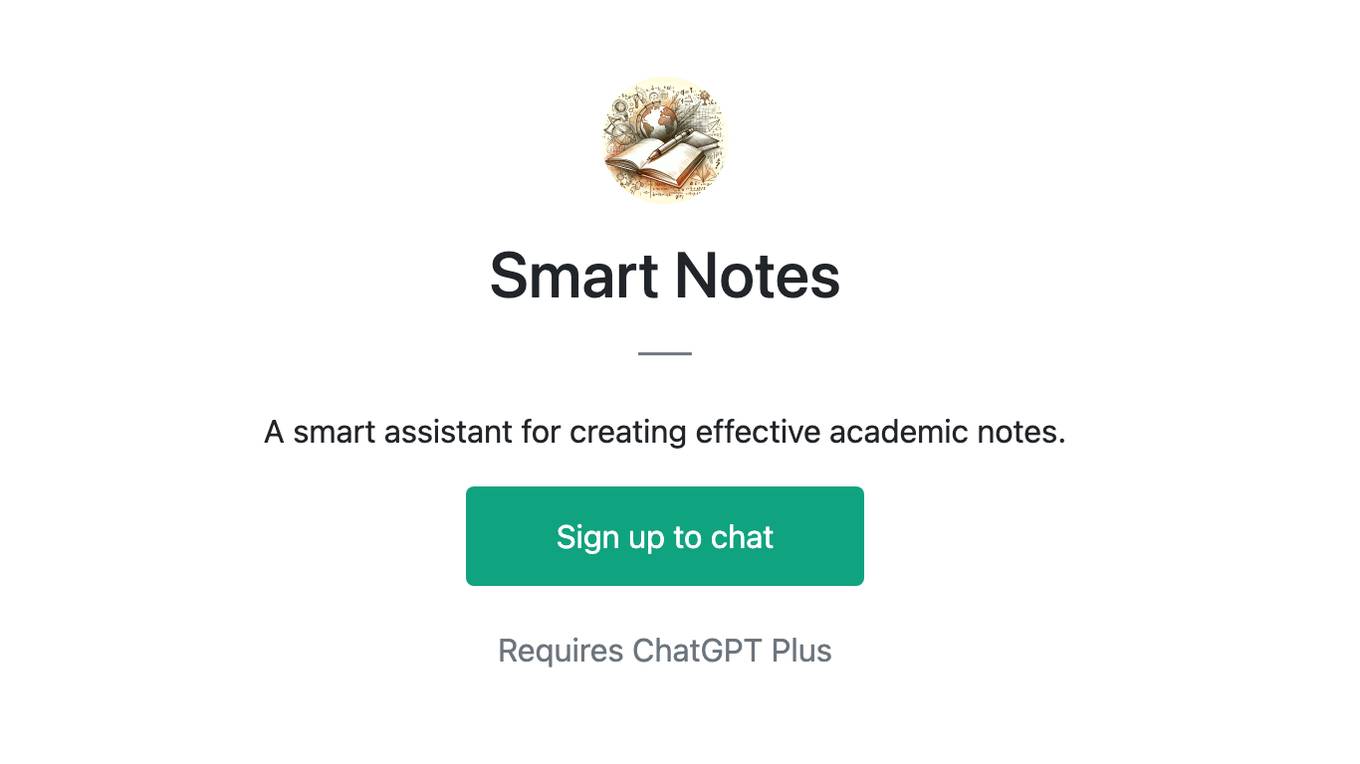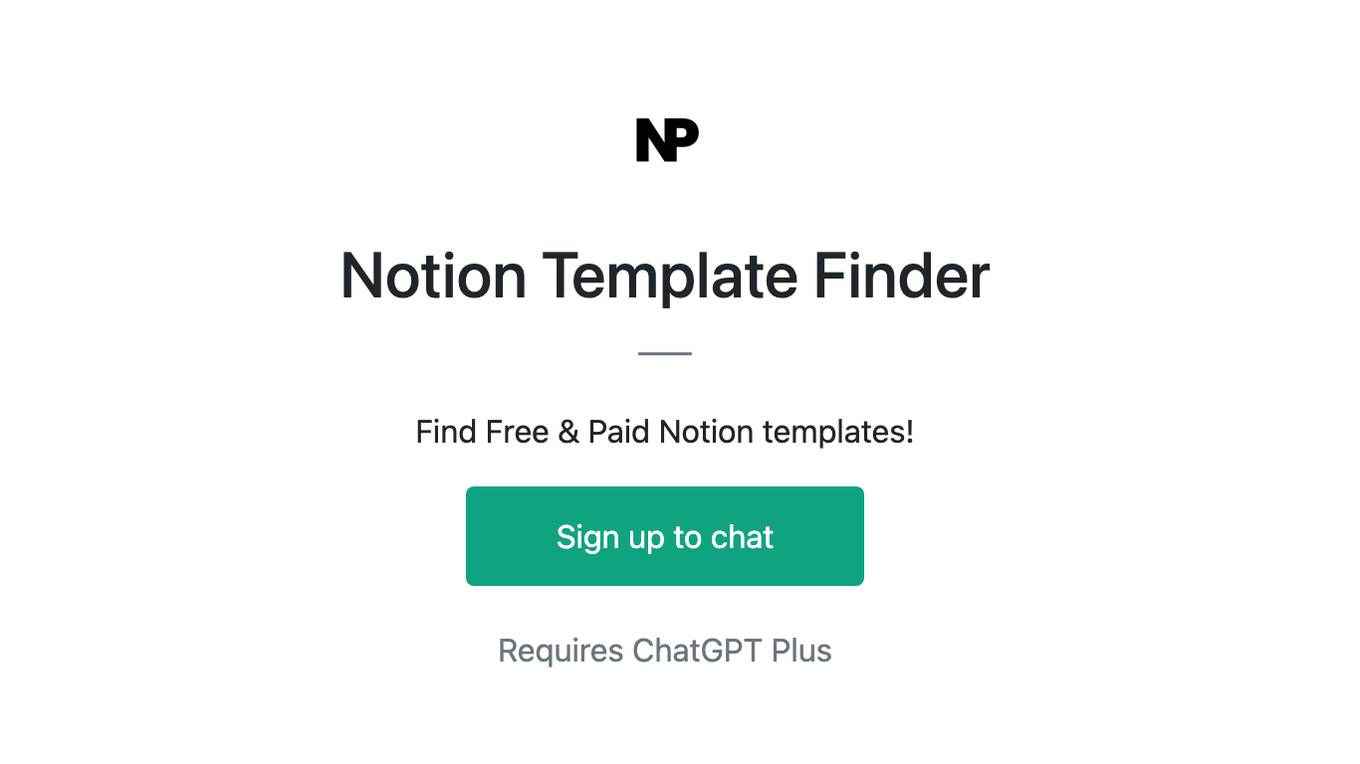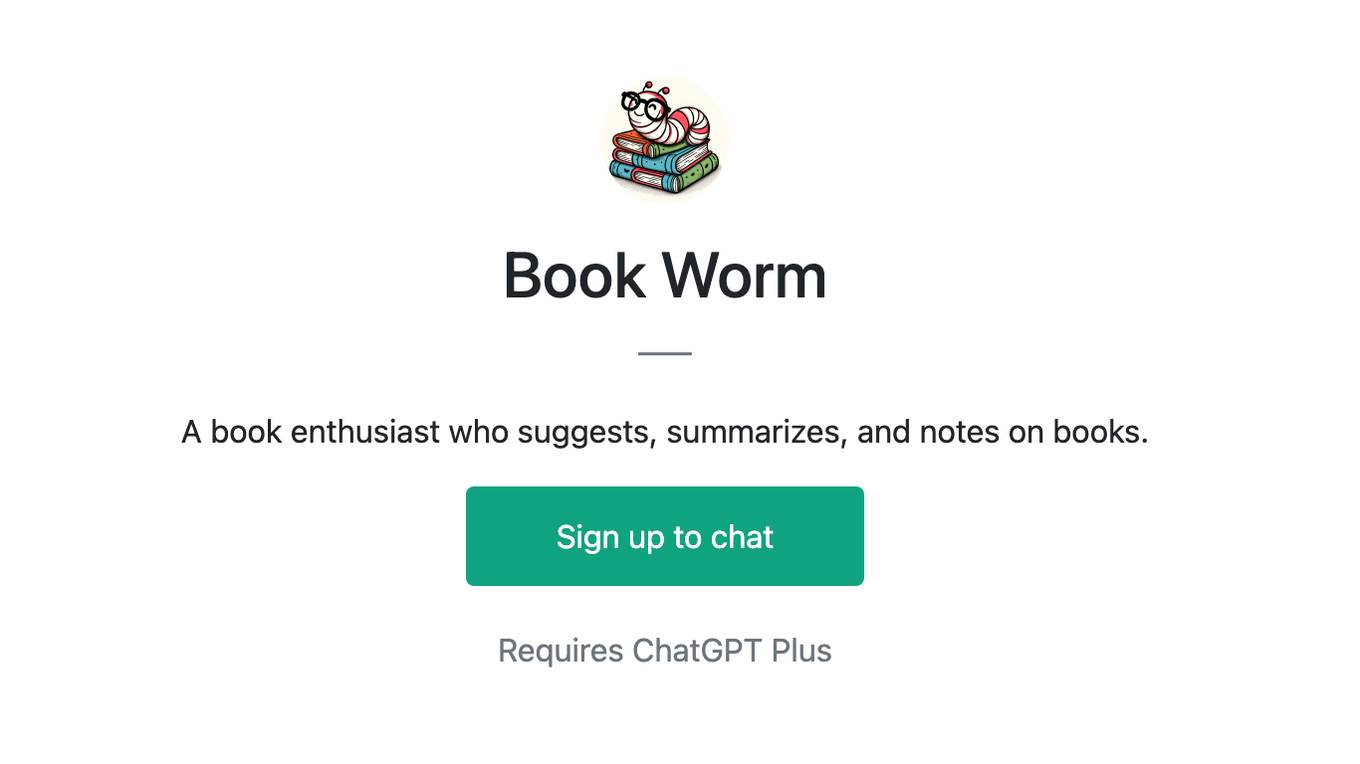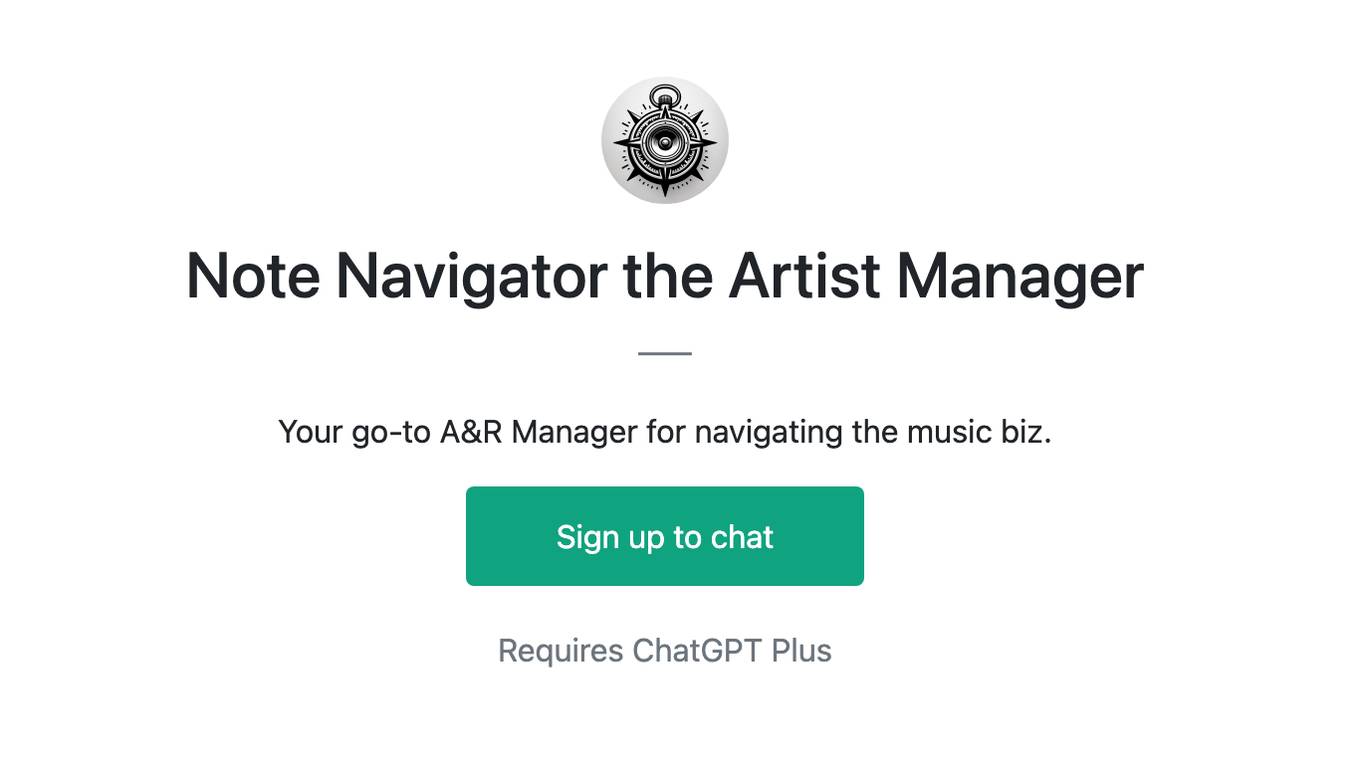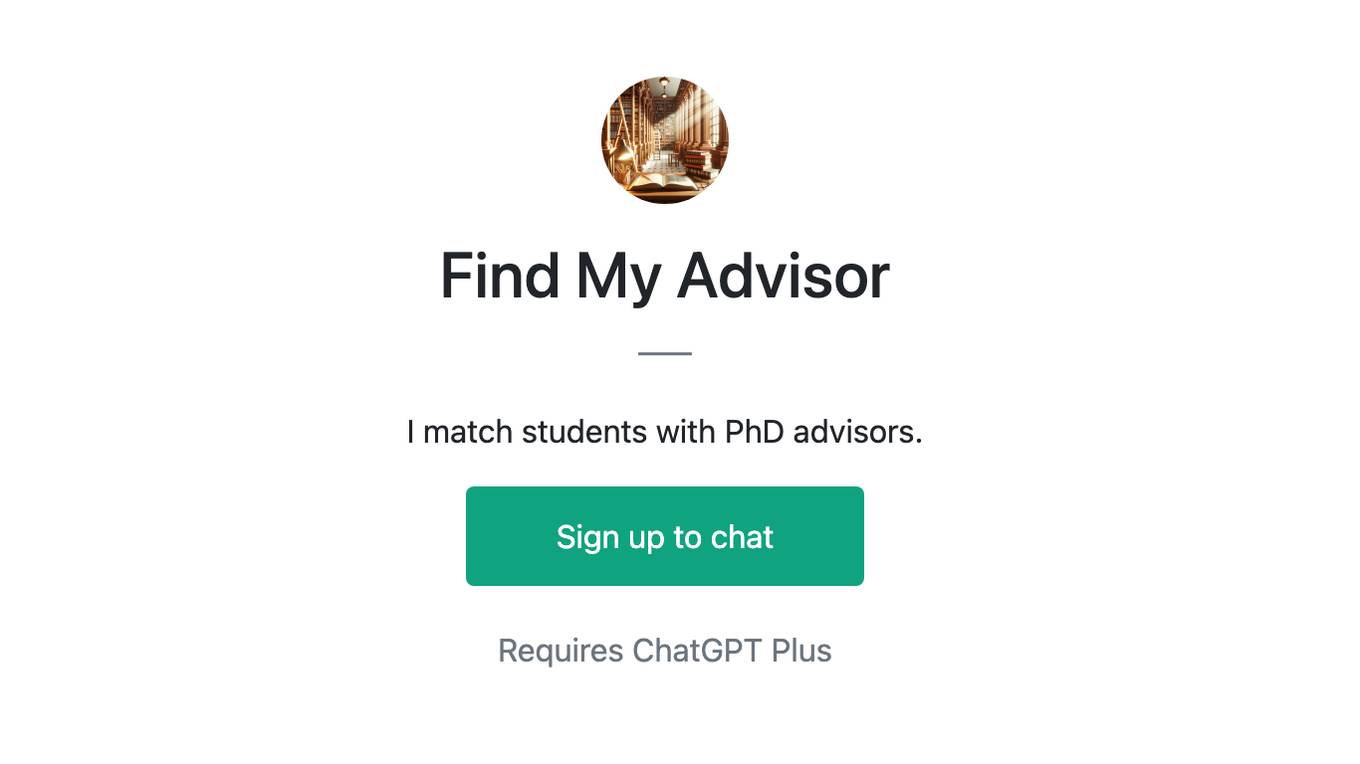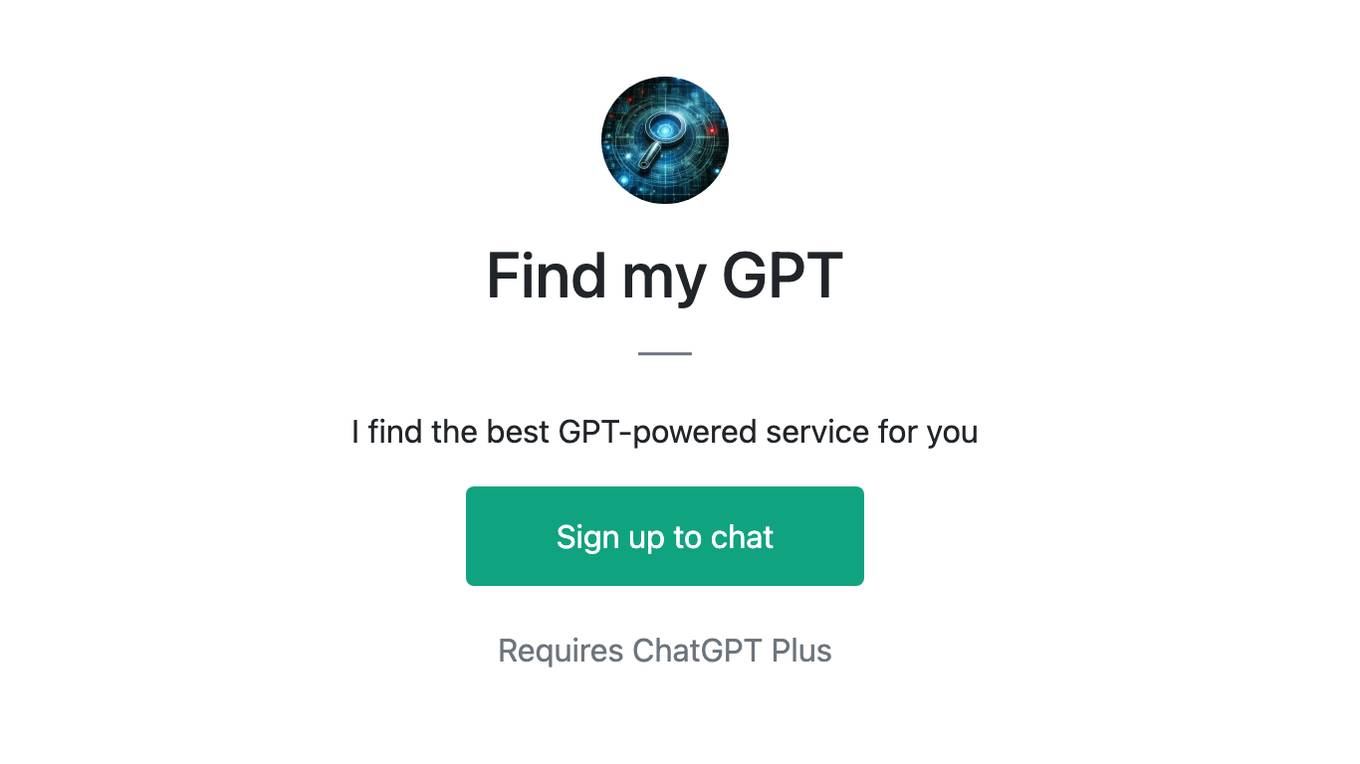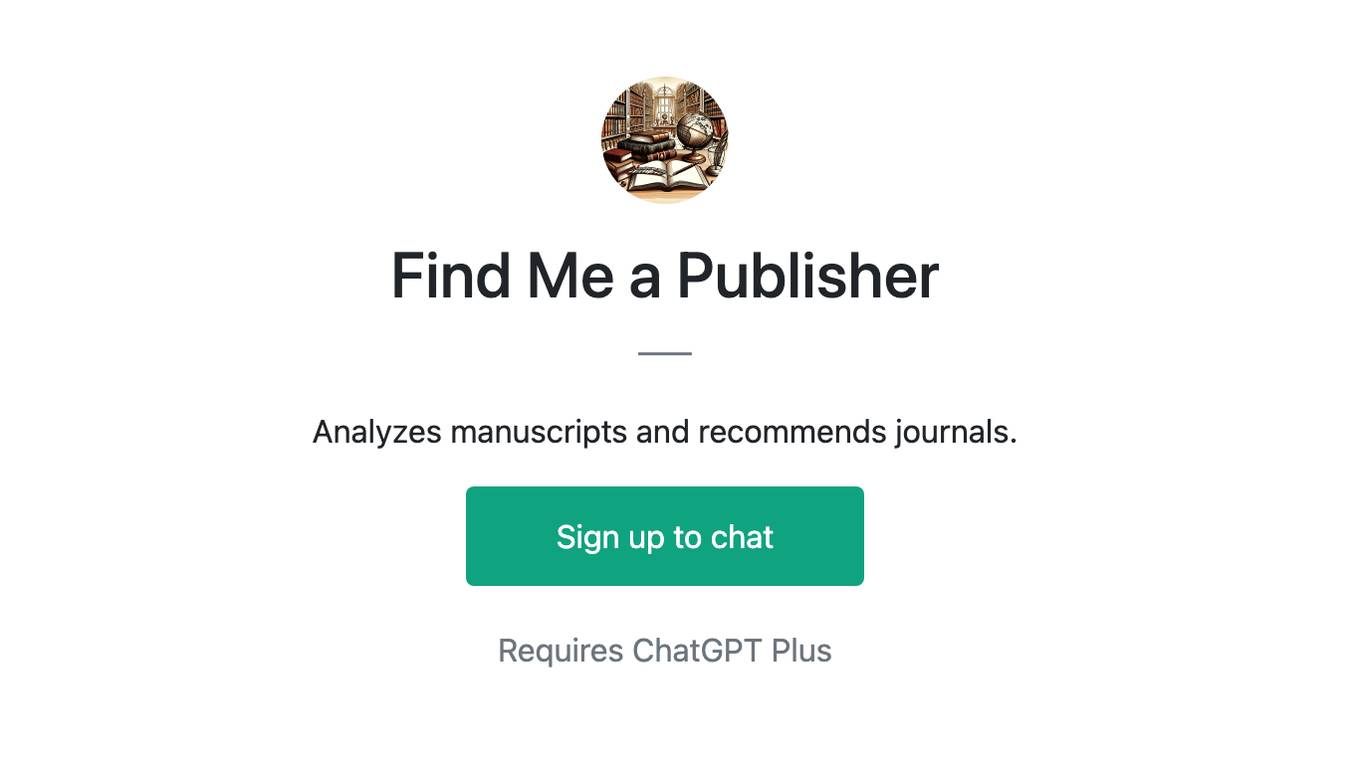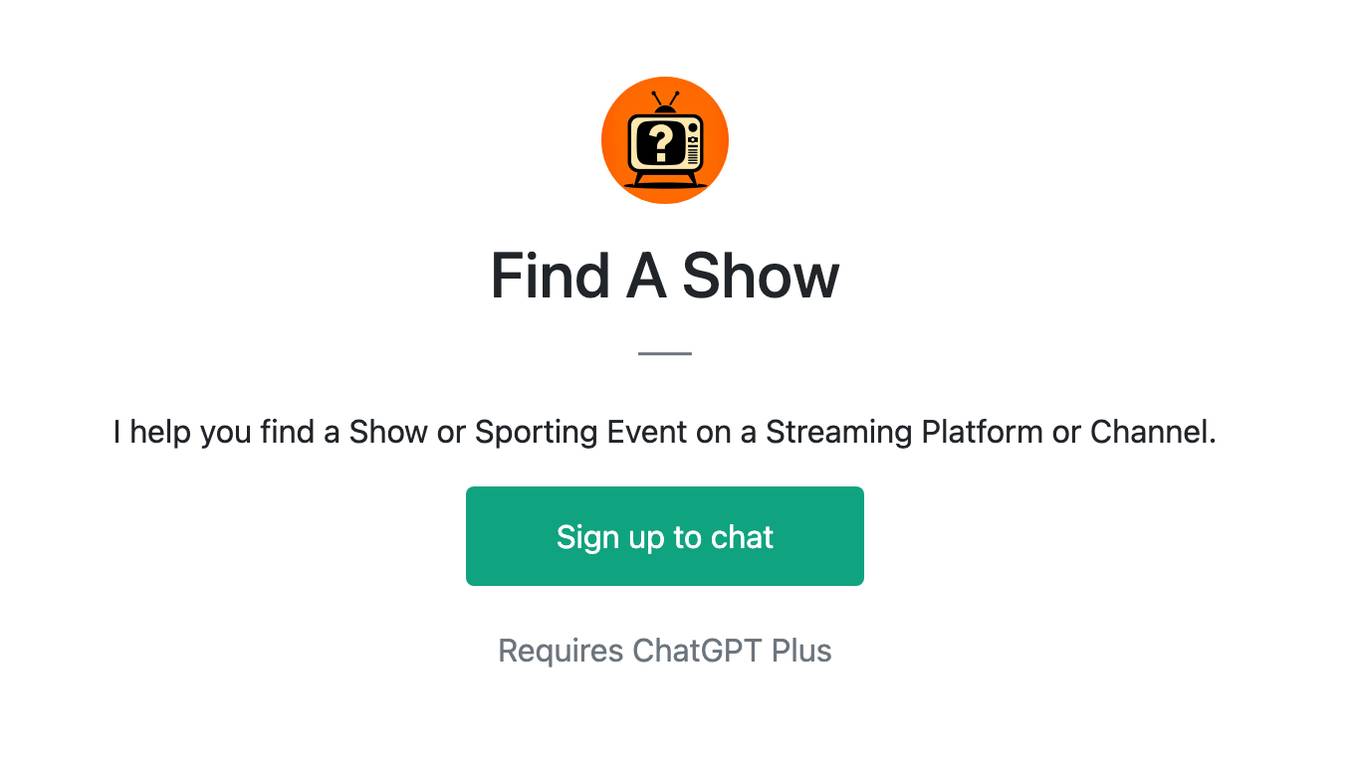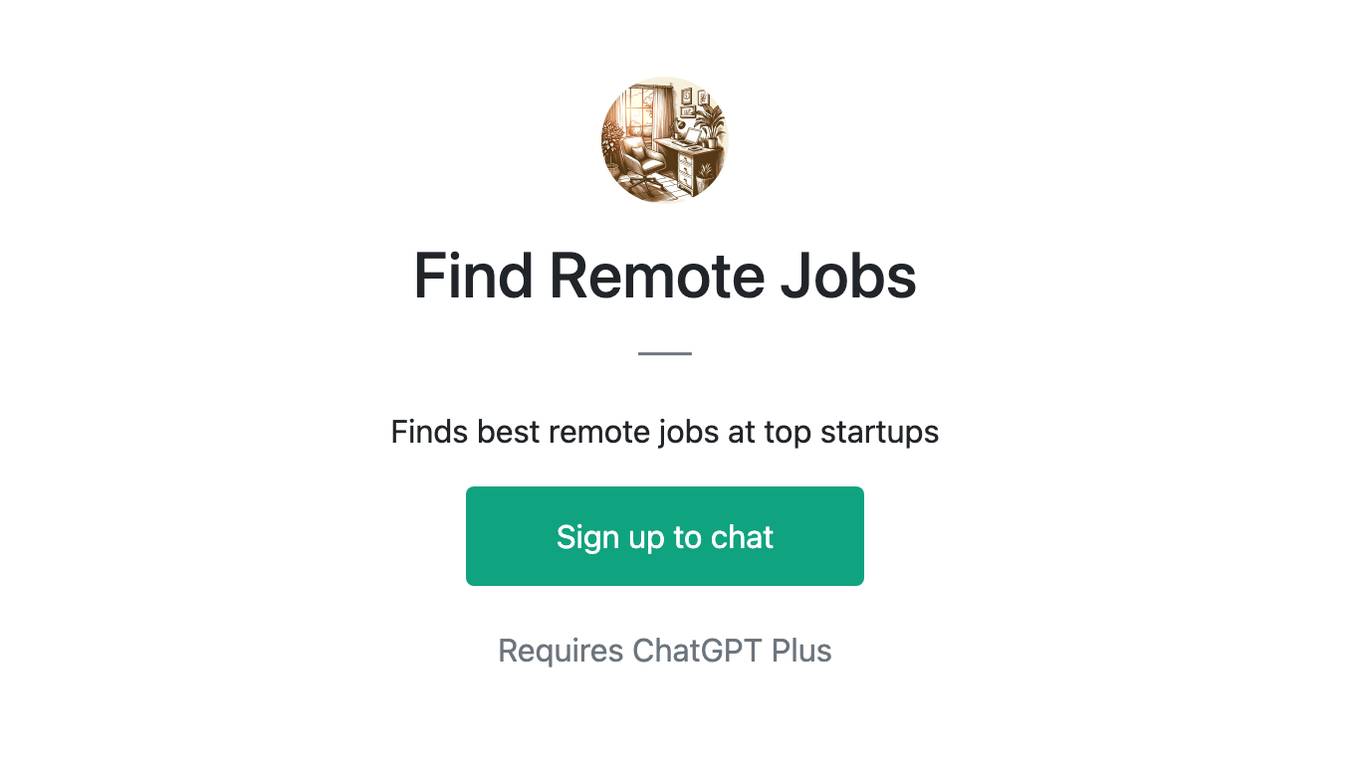Best AI tools for< find notes >
20 - AI tool Sites
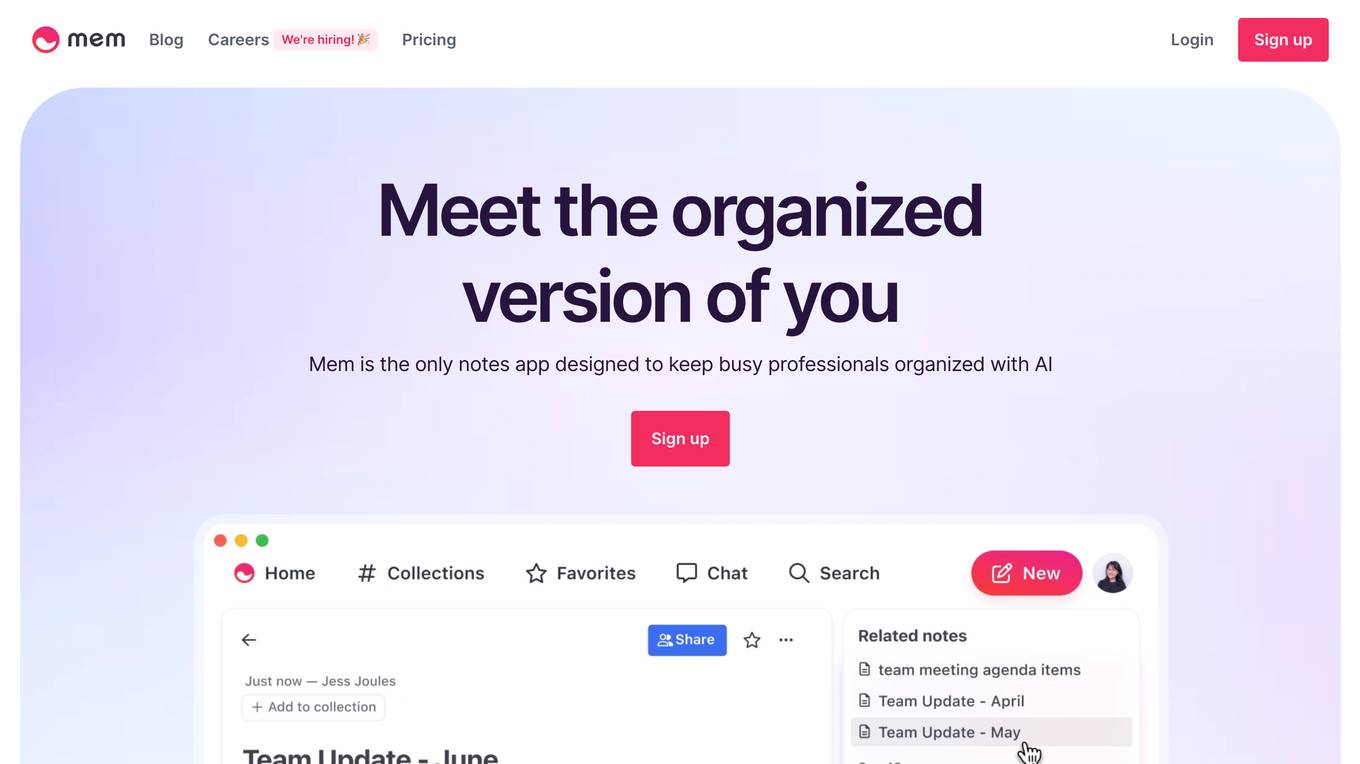
Mem
Mem is an AI notes app designed to keep users organized by providing a magic notepad to unlock and organize their best ideas. The app features Mem Chat, an AI assistant trained on user notes to provide needle-in-a-haystack answers, summarize meeting notes, and draft content. It also offers Related Notes to show relevant information without manual organization, AI powered Collections for simplified organization, and smart search capabilities. Mem is trusted by entrepreneurs, executives, and creatives for note-taking and organization tasks.
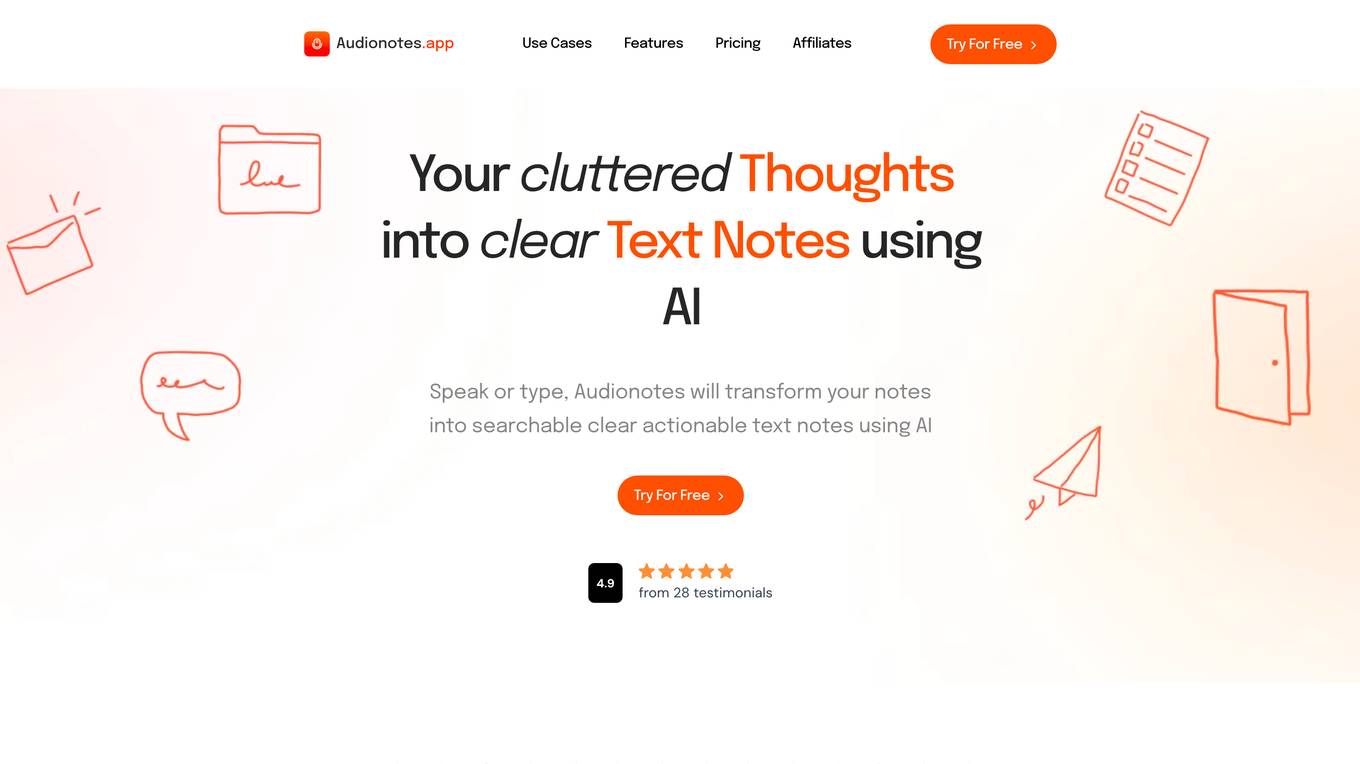
Audionotes
Audionotes is an AI-powered note-taking app that uses speech-to-text technology to transcribe and summarize audio recordings. It also offers a variety of features to help users organize and manage their notes, including the ability to create to-do lists, set reminders, and share notes with others. Audionotes is available as a web app, a mobile app, and a Chrome extension.
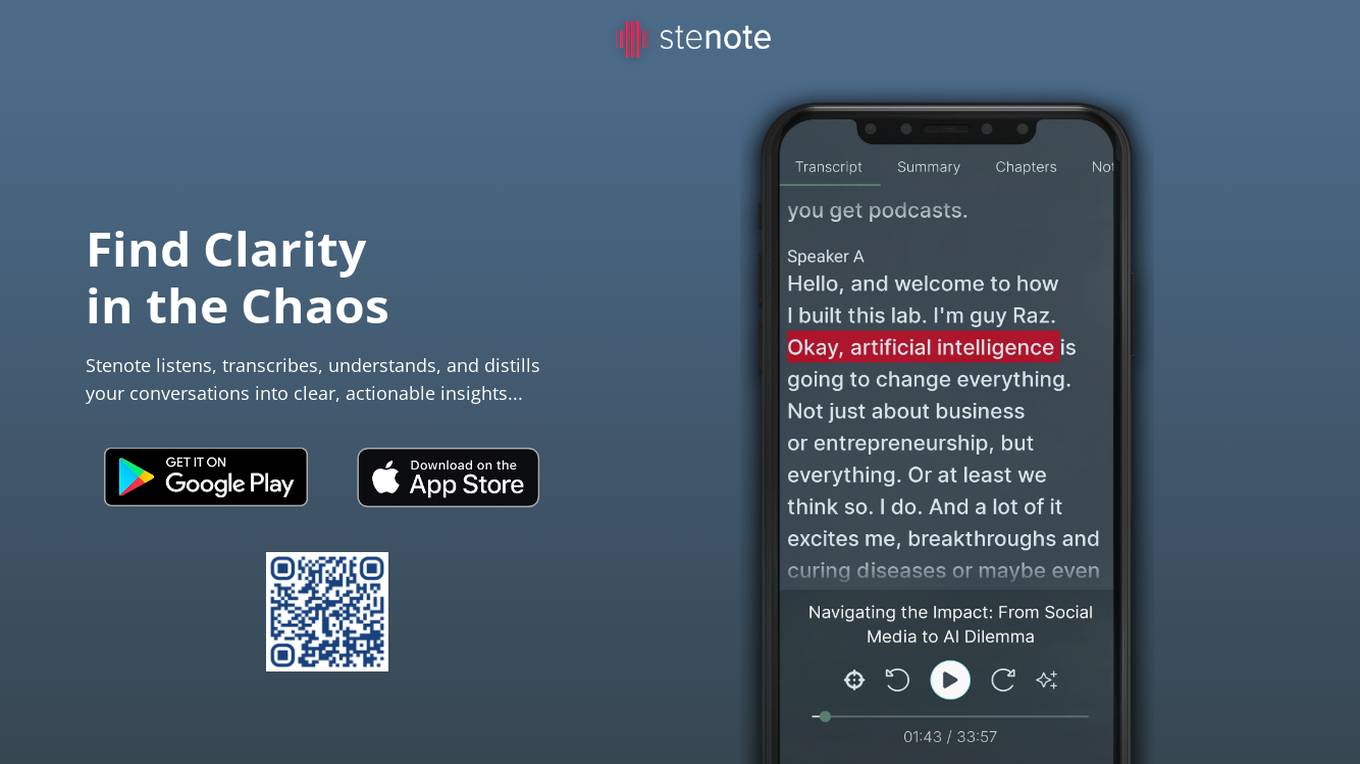
Stenote
Stenote is an AI-powered transcription and summarization tool that provides real-time, highly accurate transcriptions and concise summaries of conversations, lectures, and meetings. With its advanced AI capabilities, Stenote captures every word spoken, identifies key highlights, and generates comprehensive meeting notes, making it an invaluable tool for professionals seeking clarity and efficiency in their communication.

AI Fragrance Finder
AI Fragrance Finder is a website that uses artificial intelligence to help users find the perfect fragrance. The website has a database of over 1,000 fragrances, and users can search for fragrances by scent, notes, and occasion. AI Fragrance Finder also provides personalized recommendations based on the user's preferences.
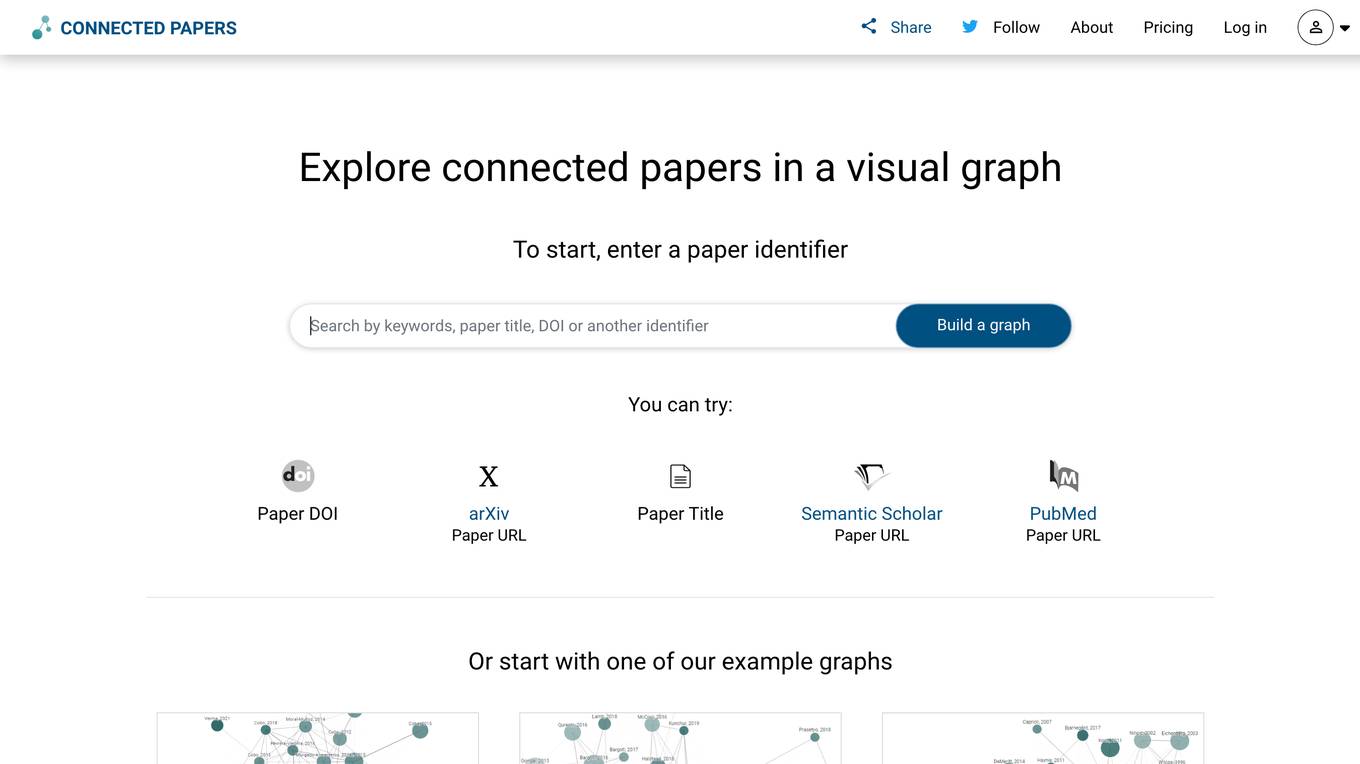
Connected Papers
Connected Papers is a search engine for academic papers that uses artificial intelligence to help users find and explore relevant research. It allows users to search for papers by keyword, author, or title, and then explore the connections between them. Connected Papers also provides a variety of tools to help users organize and manage their research, including the ability to create custom collections of papers, add notes and annotations, and share their research with others.

Fathom AI Notetaker
Fathom is an AI-powered note-taking tool that helps you record, transcribe, and summarize your meetings. It integrates with Zoom and Google Meet, and offers a range of features to help you stay organized and productive. **Key Features** * **Automatic recording and transcription:** Fathom automatically records and transcribes your meetings, so you can focus on the conversation instead of taking notes. * **AI-generated summaries:** Fathom uses AI to generate summaries of your meetings, which can save you time and help you identify key takeaways. * **Highlighting and bookmarking:** You can highlight and bookmark important moments in your meetings, so you can easily find them later. * **Sharing and collaboration:** You can share your meeting recordings and summaries with others, and collaborate on notes and action items. * **Integrations:** Fathom integrates with a range of other tools, including Zoom, Google Meet, Slack, and Asana. **Benefits** * **Save time:** Fathom can save you hours of time by automatically recording and transcribing your meetings. * **Stay organized:** Fathom helps you stay organized by providing a central place to store your meeting recordings and notes. * **Improve productivity:** Fathom can help you improve your productivity by providing you with easy access to the information you need from your meetings. * **Make better decisions:** Fathom can help you make better decisions by providing you with a clear understanding of what was discussed in your meetings. **Pricing** Fathom is free to use for individuals. There is also a paid Team Edition that offers additional features, such as: * **Unlimited storage:** The Team Edition gives you unlimited storage for your meeting recordings and notes. * **Team management:** The Team Edition allows you to manage your team's access to Fathom. * **Custom branding:** The Team Edition allows you to customize Fathom with your own branding. **Alternatives** * Otter.ai * Trint * Descript * Rev **Use Cases** * **Sales:** Fathom can help sales teams track their progress and identify opportunities. * **Customer success:** Fathom can help customer success teams build relationships with their customers and resolve issues quickly. * **Product development:** Fathom can help product development teams gather feedback from users and improve their products. * **Marketing:** Fathom can help marketing teams track the effectiveness of their campaigns and generate leads. * **Education:** Fathom can help educators record and share lectures and other materials with students. **FAQ** **Q: How much does Fathom cost?** A: Fathom is free to use for individuals. There is also a paid Team Edition that offers additional features. **Q: What are the benefits of using Fathom?** A: Fathom can save you time, help you stay organized, improve your productivity, and make better decisions. **Q: What are the alternatives to Fathom?** A: Some alternatives to Fathom include Otter.ai, Trint, Descript, and Rev. **Q: What are some use cases for Fathom?** A: Fathom can be used for a variety of purposes, including sales, customer success, product development, marketing, and education.
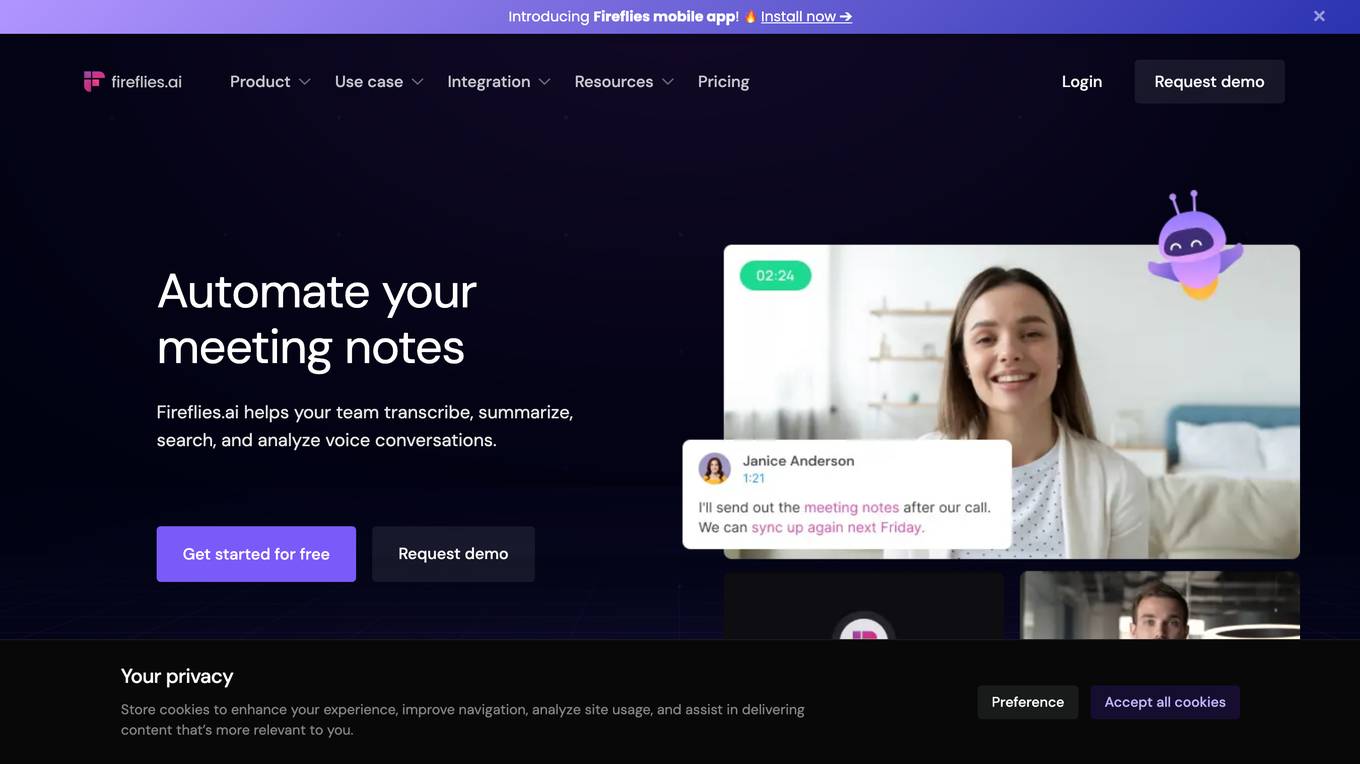
Fireflies.ai
Fireflies.ai is an AI-powered notetaker that helps teams transcribe, summarize, search, and analyze voice conversations. It integrates with popular video conferencing apps and dialers, allowing users to automatically record and transcribe meetings. Fireflies.ai also offers advanced features such as AI-powered search, collaboration tools, and conversation intelligence, enabling teams to quickly find key information, collaborate on meeting notes, and gain insights from their conversations.
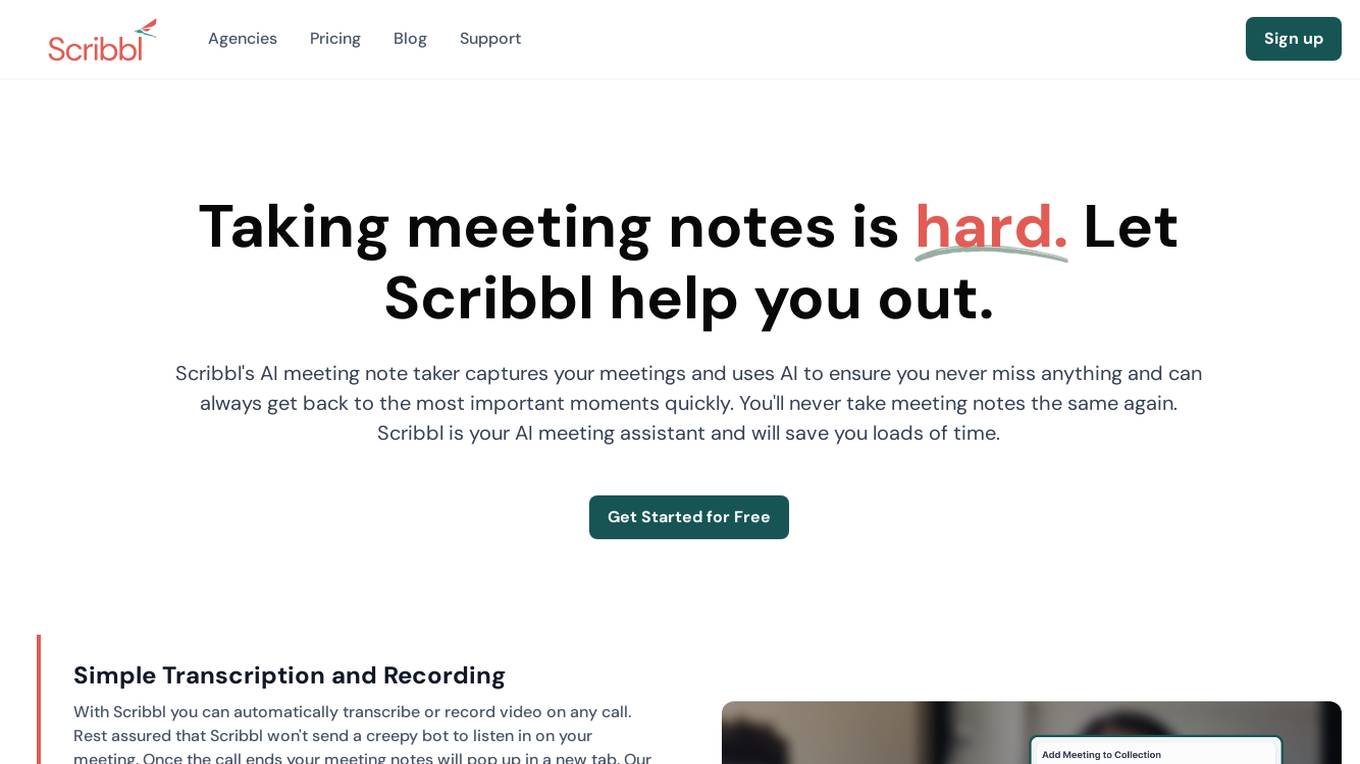
Scribbl
Scribbl is an AI note-taking tool designed to assist users in capturing meeting notes efficiently. It uses AI technology to transcribe and record meetings, break down discussions into digestible topics, and help users find key moments quickly. Scribbl aims to enhance post-meeting productivity by providing a seamless and organized note-taking experience.
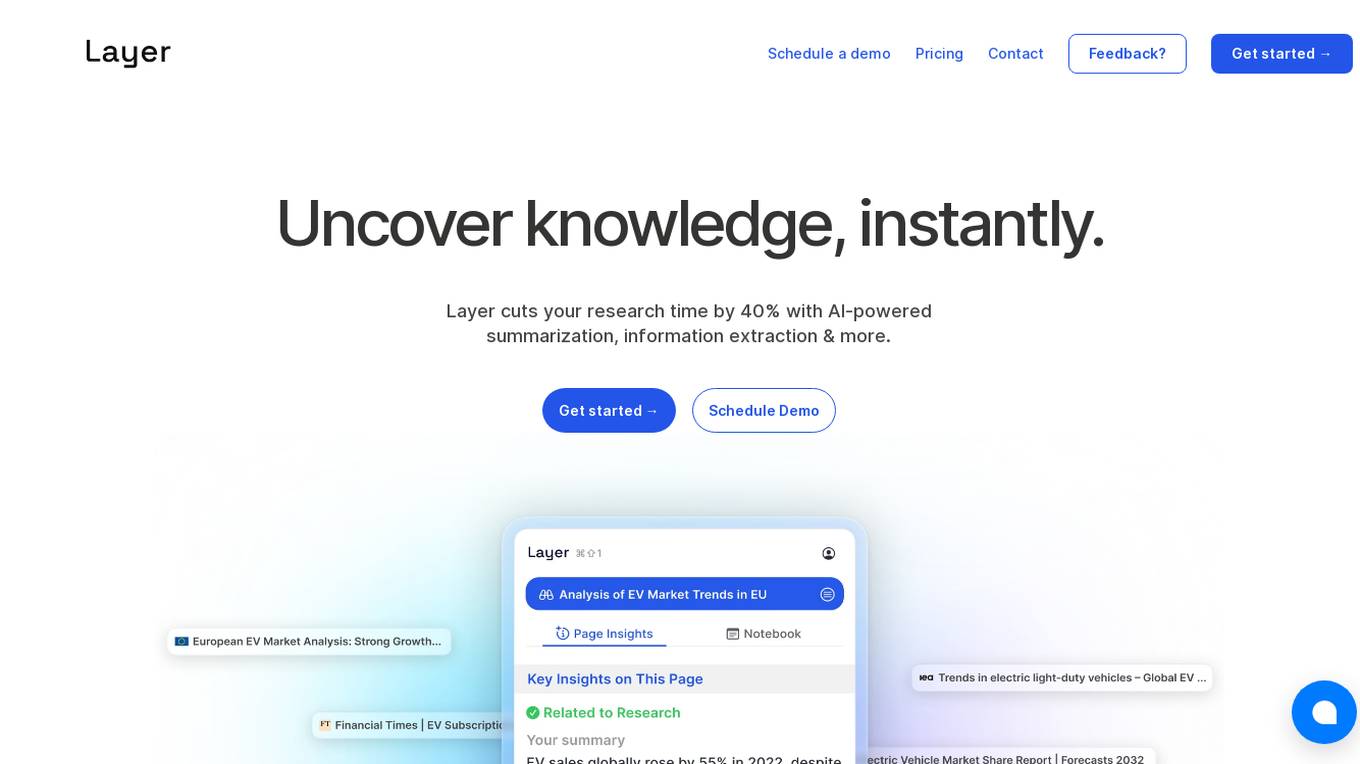
Layer
Layer is an AI research copilot that helps you stay up-to-date with the latest advancements in AI and find the resources you need to build your own AI projects.

Fabric
Fabric is an AI-native workspace and file explorer for individuals and teams. It is a self-organizing tool that gathers your drives, clouds, notes, links, and files into one intelligent home. With Fabric, you can find anything fast, in natural language, chat with your data, and collaborate on any file or document. Thousands of creators, researchers, and thinkers from the world's biggest brands use Fabric to organize their digital world and work more efficiently.
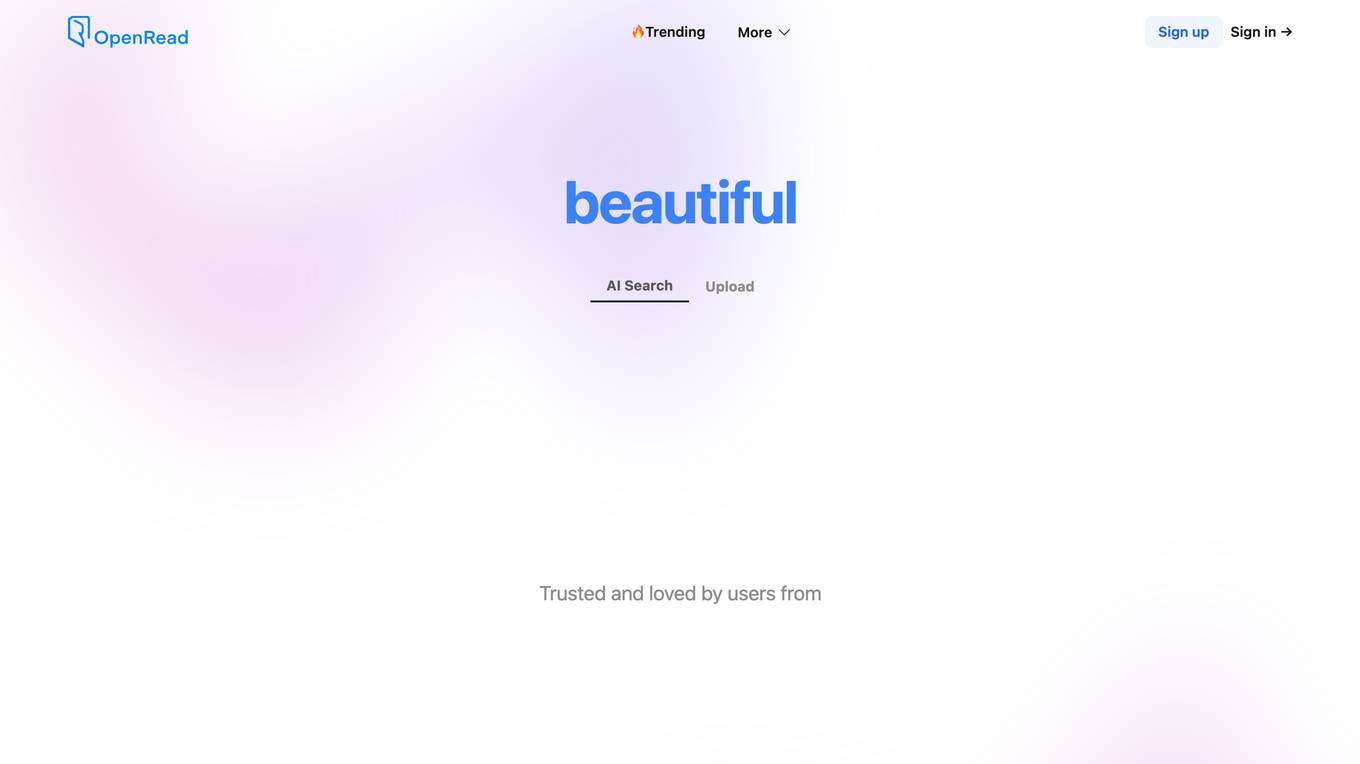
OpenRead
OpenRead is an AI-powered research tool that helps users discover, understand, and organize scientific literature. It offers a variety of features to make research more efficient and effective, including semantic search, AI summarization, and note-taking tools. OpenRead is designed to help researchers of all levels, from students to experienced professionals, save time and improve their research outcomes.
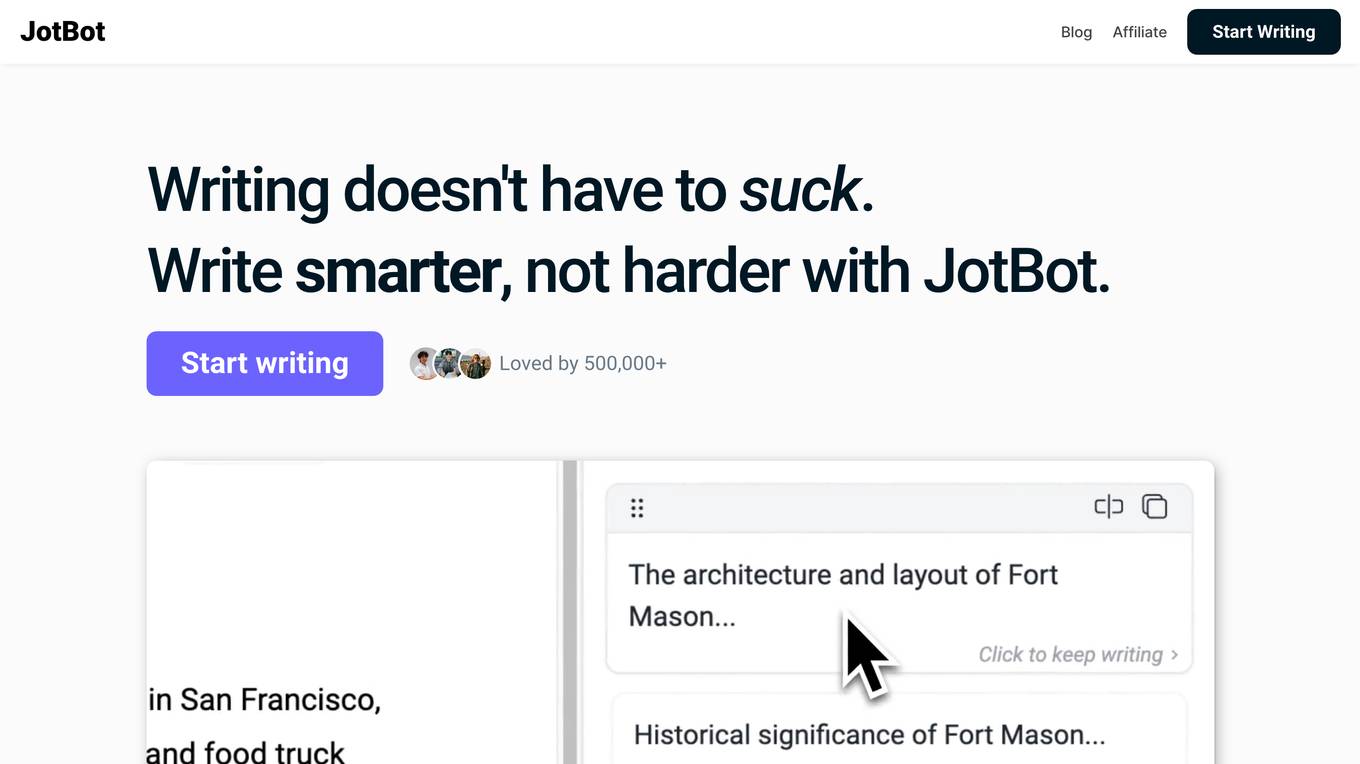
JotBot
JotBot is an AI writing tool that assists users in writing and research tasks by providing AI-powered features such as autocomplete, source finding, draft generation, and more. It helps users overcome writer's block, streamline research processes, and enhance writing quality. Trusted by universities and businesses, JotBot aims to be a valuable writing assistant for writers, students, teams, and researchers.
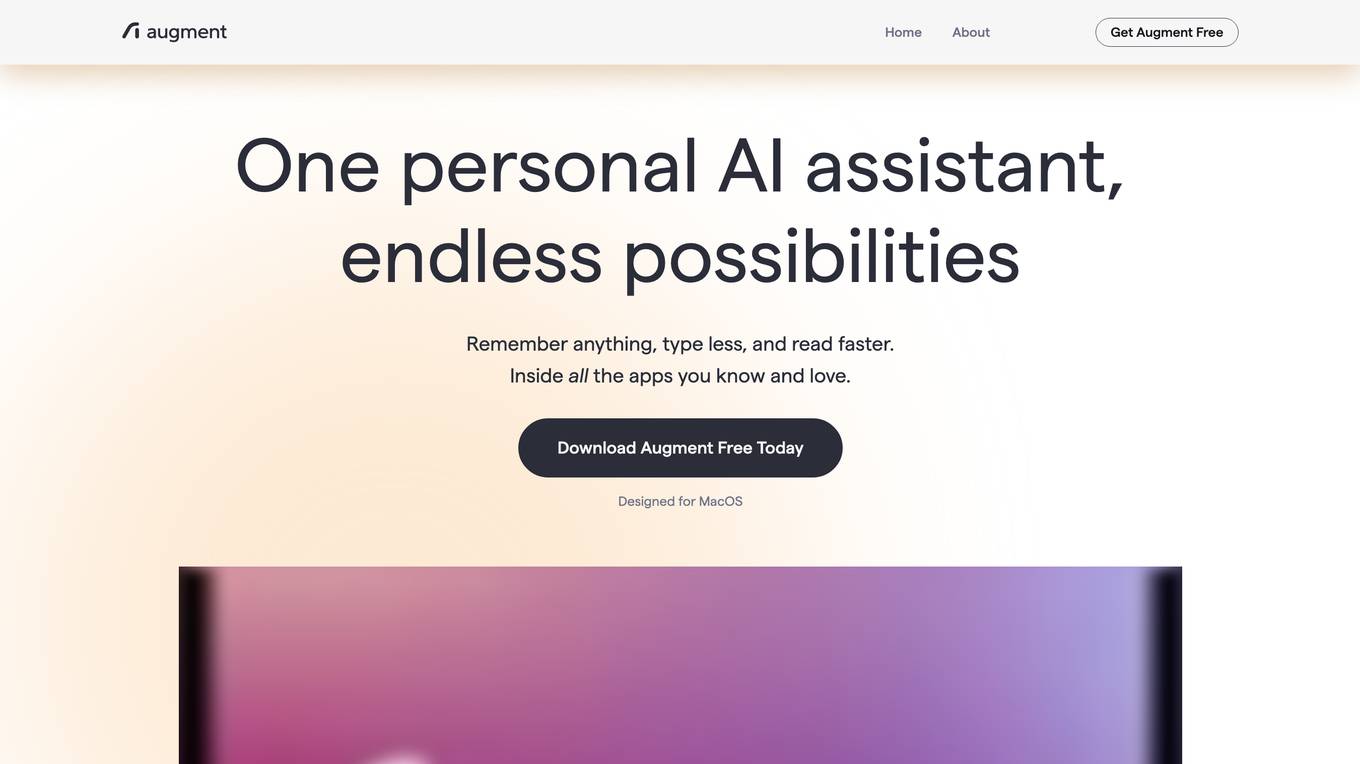
Augment
Augment is a personal AI assistant that helps you remember anything, type less, and read faster. It works inside all the apps you know and love, so you can stay focused on the task at hand. Augment is designed for macOS and is trusted by professionals from all walks of life.
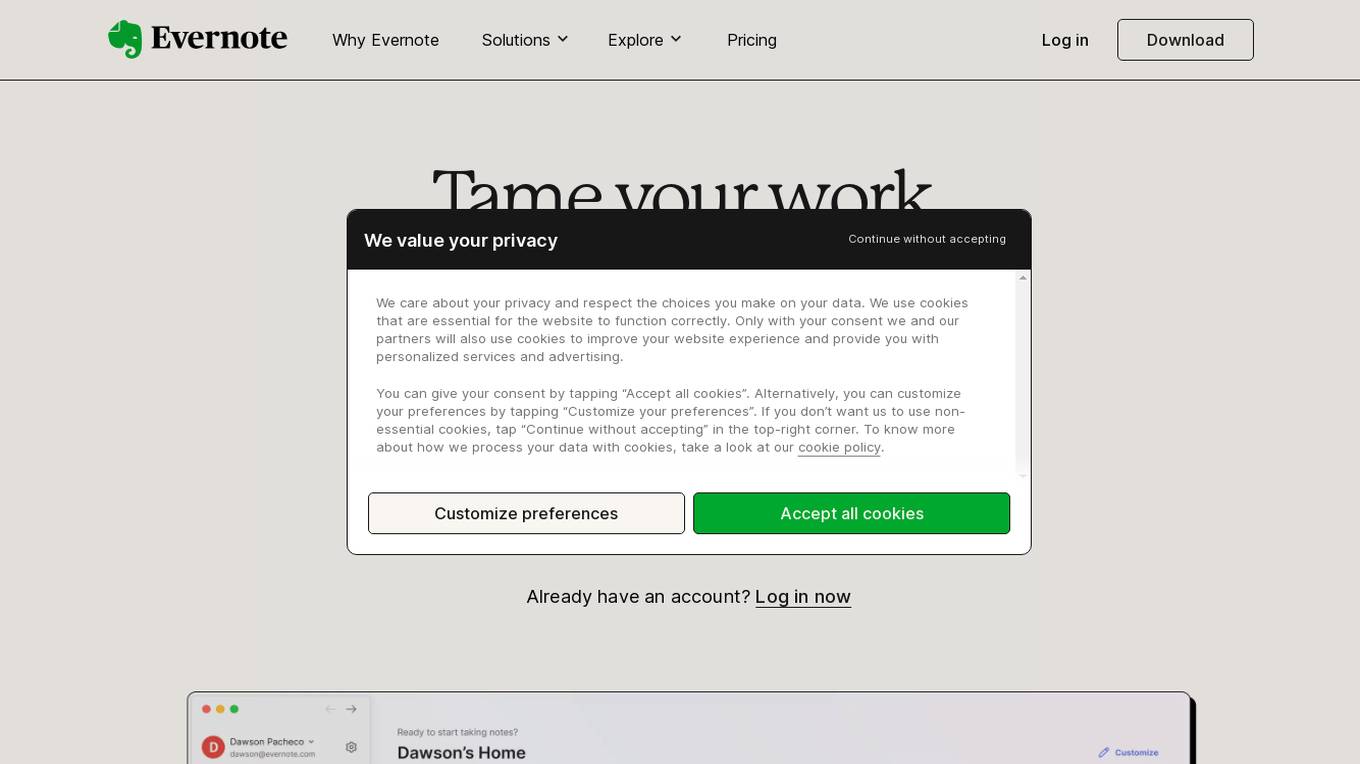
Evernote
Evernote is a powerful note-taking application that helps users organize their notes, tasks, and schedules in one place. It offers features such as AI-powered search, collaboration tools, web clipping, document scanning, and personalization options. Users can access their information across all devices, even in offline mode. Evernote is suitable for executives, entrepreneurs, students, and creative individuals to capture and arrange their ideas efficiently.
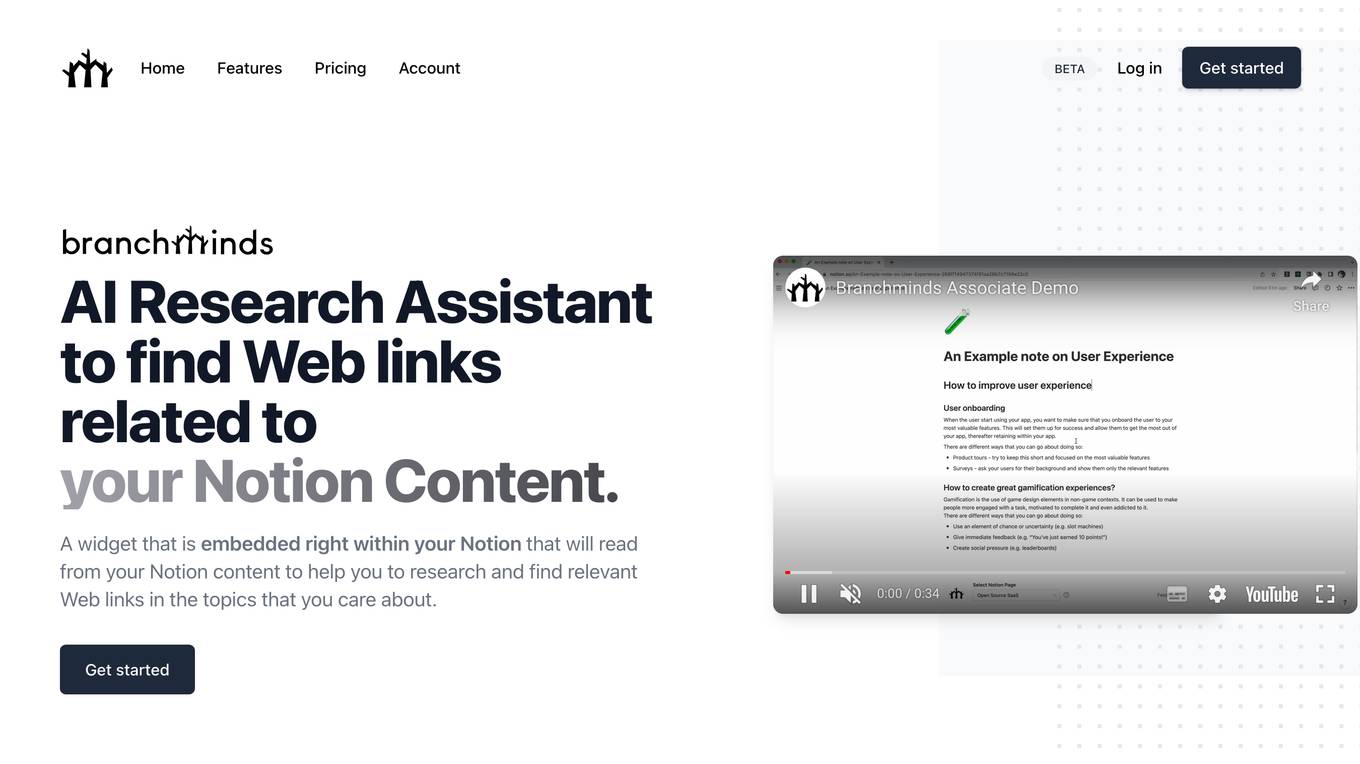
Branchminds
Branchminds is an AI Research Assistant designed to find web links related to your Notion content. It is a widget embedded within your Notion workspace that reads your existing ideas and helps you research and discover relevant web links on topics of interest. By seamlessly integrating with Notion, Branchminds eliminates the need to switch between tabs, allowing you to efficiently pull content from your Notion pages, associate notes with web links, generate new content, and brainstorm ideas. The tool aims to assist users in enhancing their workspace productivity by providing relevant insights and facilitating idea generation.

Unriddle
Unriddle is an AI-powered research and writing tool that helps users quickly find information in documents, simplify complex topics, take notes, and write with the power of AI. It generates an AI assistant on top of any document, allowing users to quickly find, summarize, and understand information. Unriddle also understands the meaning behind users' writing and automatically links them to relevant information they've read and written about in the past. Additionally, it offers a Chrome extension for summarizing articles with a single click and supports over 90 languages.

Recall
Recall is a web and mobile application that allows users to summarize and save any online content. It uses artificial intelligence to automatically categorize and connect saved content, making it easy to find and rediscover later. Recall also offers spaced repetition learning, data export, and offline access.

Chord
Chord is an AI-powered research assistant that helps you find information on any topic. Simply enter a topic of interest and Chord will generate a personalized article based on real-time web research. Chord also offers a variety of features to help you stay organized and productive, including the ability to save articles, create notes, and collaborate with others.
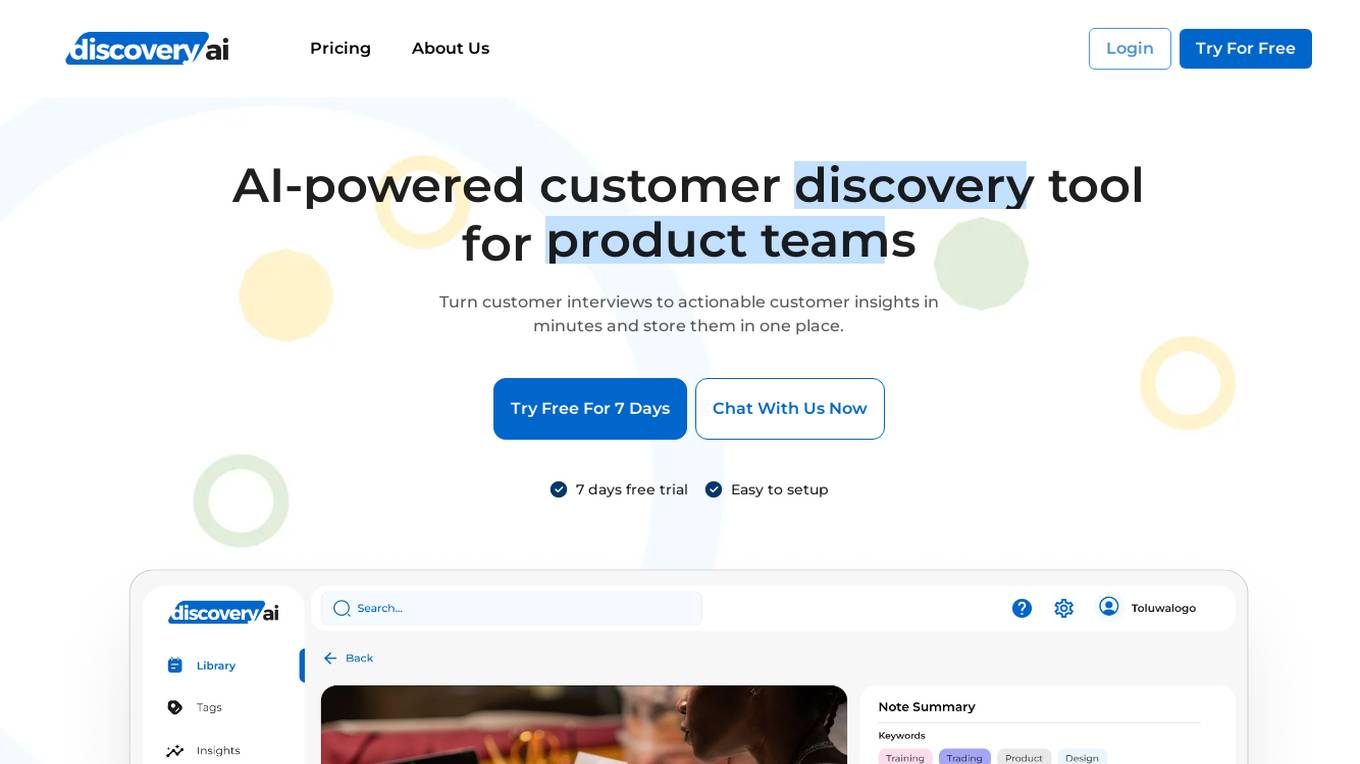
DiscoveryAi
DiscoveryAi is an AI-powered research assistant that helps you find and organize the information you need to make better decisions. With DiscoveryAi, you can quickly and easily search through a vast database of articles, news, and other content to find the information you need. You can also use DiscoveryAi to organize your research into folders and notes, and to collaborate with others on research projects.
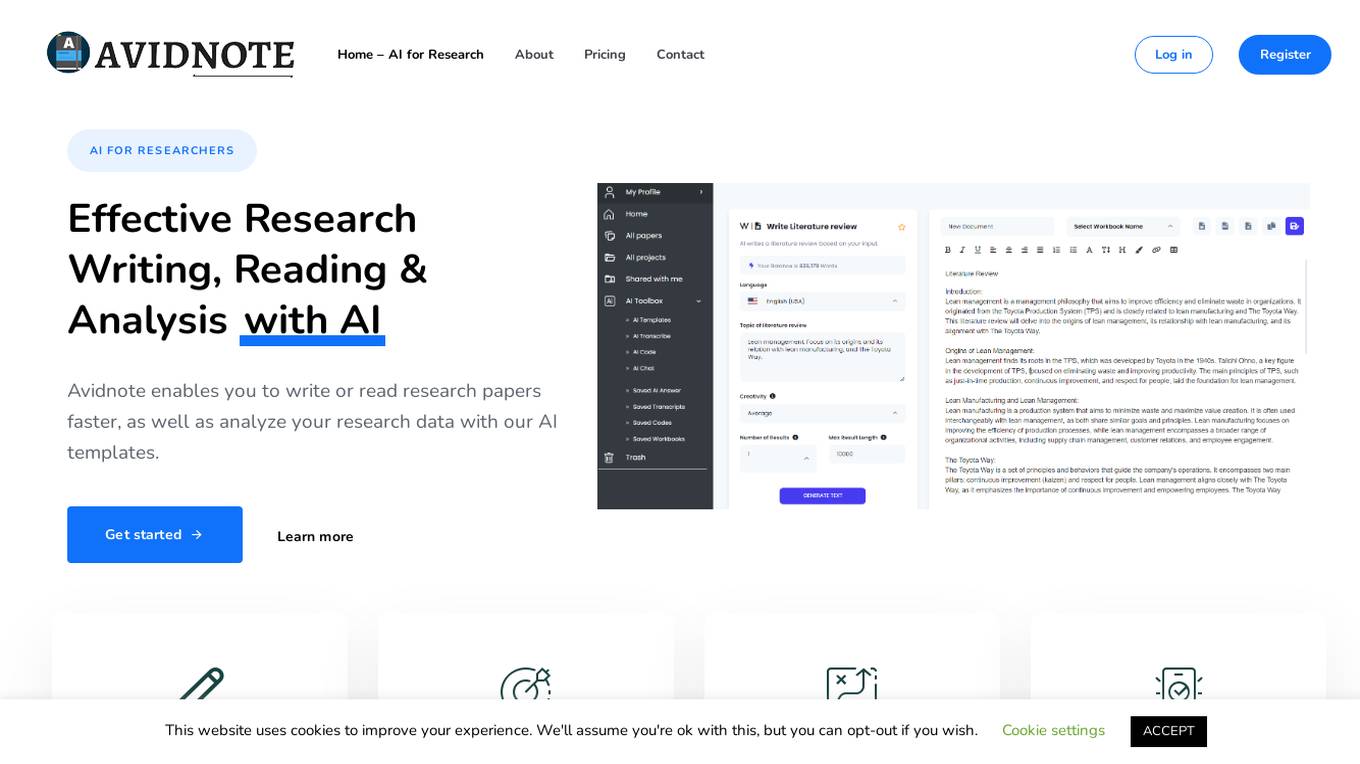
Avidnote
Avidnote is an AI tool designed for research writing, reading, and analysis. It enables users to write or read research papers faster, analyze research data with AI templates, summarize text, find research gaps, transcribe interviews, and more. Avidnote offers AI functionalities tailored for researchers, recommended by universities, and supported by researchers worldwide. The platform provides free and paid plans with varying features and benefits to cater to different user needs.
20 - Open Source AI Tools
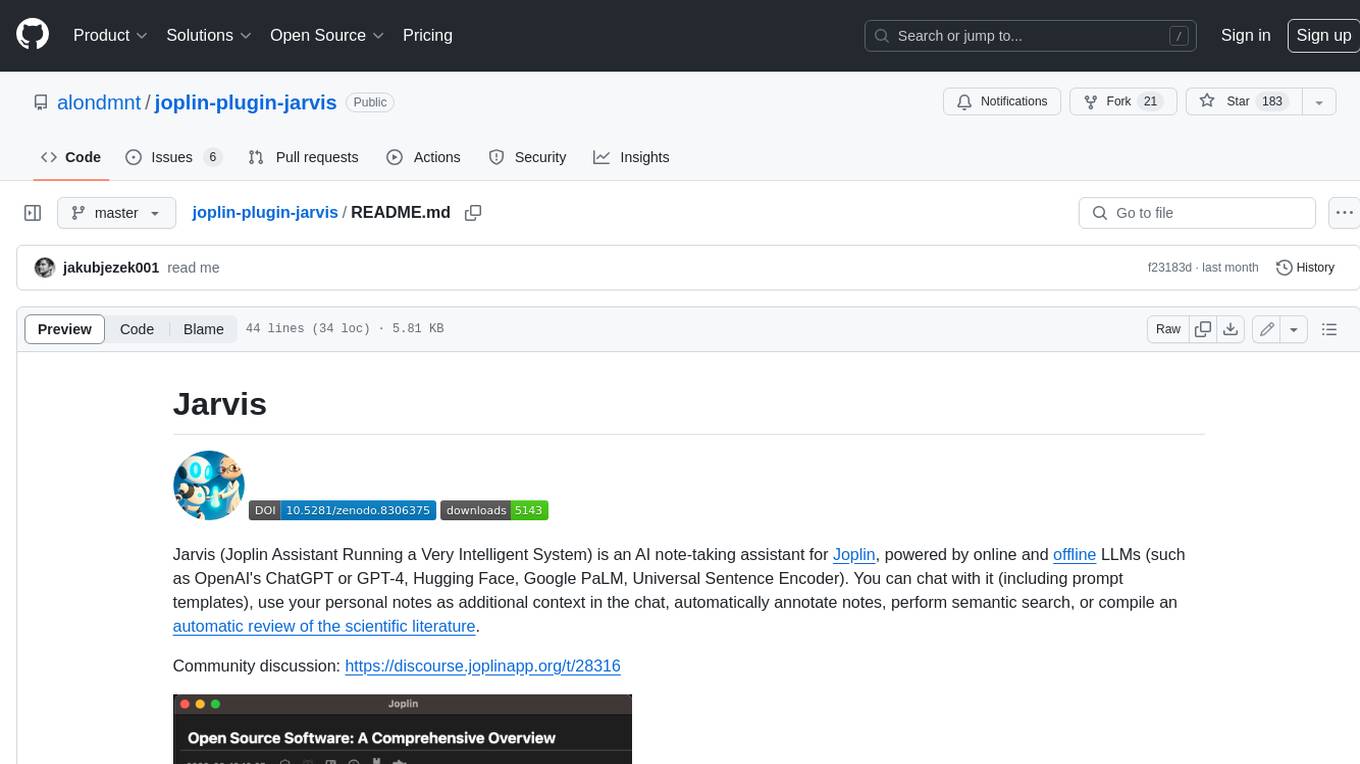
joplin-plugin-jarvis
Jarvis is an AI note-taking assistant for Joplin, powered by online and offline LLMs (such as OpenAI's ChatGPT or GPT-4, Hugging Face, Google PaLM, Universal Sentence Encoder). You can chat with it (including prompt templates), use your personal notes as additional context in the chat, automatically annotate notes, perform semantic search, or compile an automatic review of the scientific literature.
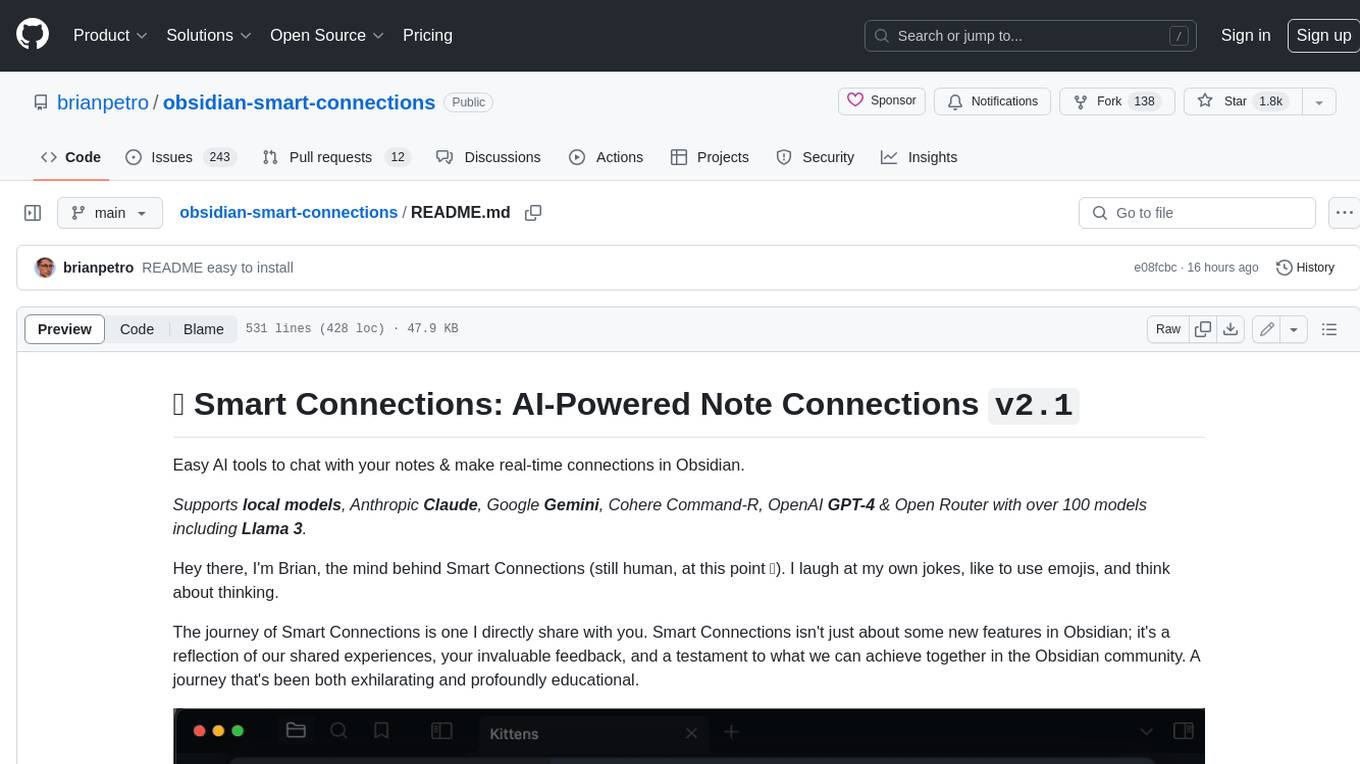
obsidian-smart-connections
Smart Connections is an AI-powered plugin for Obsidian that helps you discover hidden connections and insights in your notes. With features like Smart View for real-time relevant note suggestions and Smart Chat for chatting with your notes, Smart Connections makes it easier than ever to stay organized and uncover hidden connections between your notes. Its intuitive interface and customizable settings ensure a seamless experience, tailored to your unique needs and preferences.
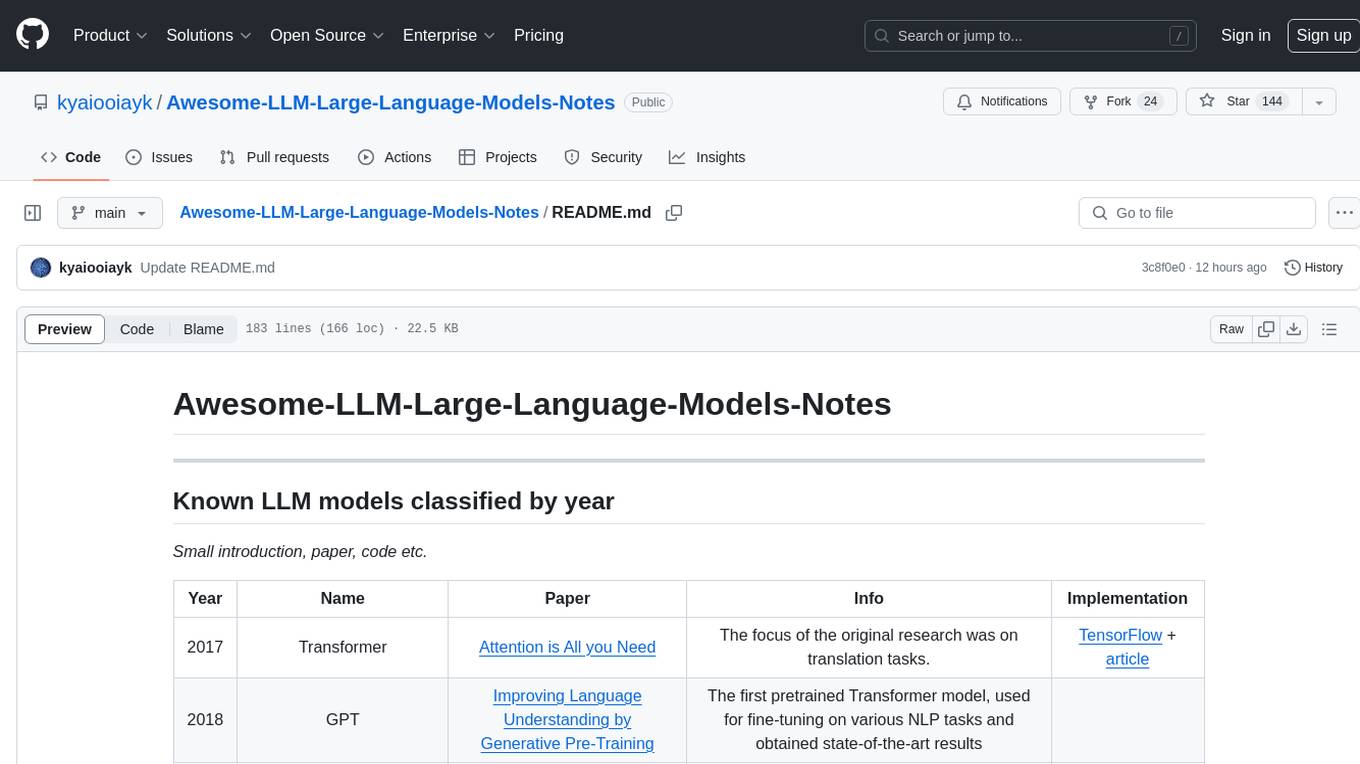
Awesome-LLM-Large-Language-Models-Notes
Awesome-LLM-Large-Language-Models-Notes is a repository that provides a comprehensive collection of information on various Large Language Models (LLMs) classified by year, size, and name. It includes details on known LLM models, their papers, implementations, and specific characteristics. The repository also covers LLM models classified by architecture, must-read papers, blog articles, tutorials, and implementations from scratch. It serves as a valuable resource for individuals interested in understanding and working with LLMs in the field of Natural Language Processing (NLP).
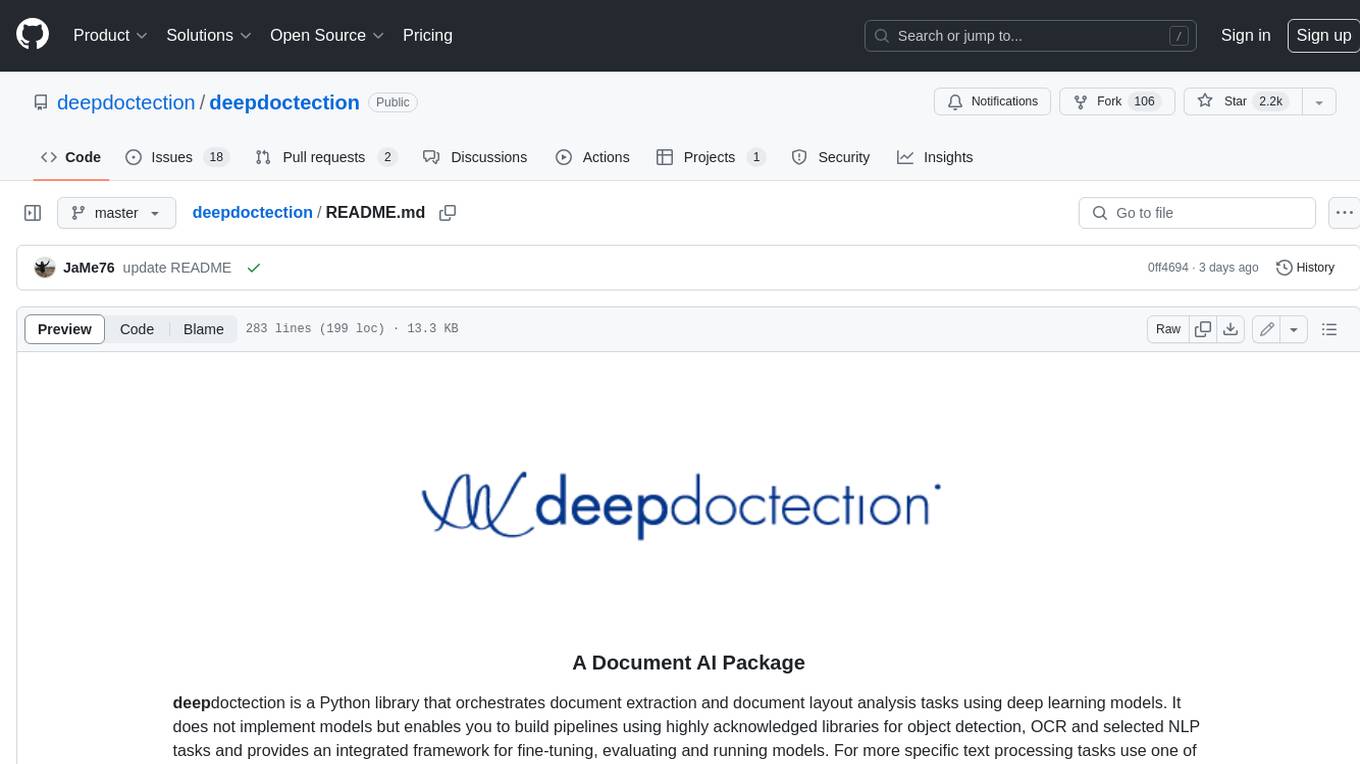
deepdoctection
**deep** doctection is a Python library that orchestrates document extraction and document layout analysis tasks using deep learning models. It does not implement models but enables you to build pipelines using highly acknowledged libraries for object detection, OCR and selected NLP tasks and provides an integrated framework for fine-tuning, evaluating and running models. For more specific text processing tasks use one of the many other great NLP libraries. **deep** doctection focuses on applications and is made for those who want to solve real world problems related to document extraction from PDFs or scans in various image formats. **deep** doctection provides model wrappers of supported libraries for various tasks to be integrated into pipelines. Its core function does not depend on any specific deep learning library. Selected models for the following tasks are currently supported: * Document layout analysis including table recognition in Tensorflow with **Tensorpack**, or PyTorch with **Detectron2**, * OCR with support of **Tesseract**, **DocTr** (Tensorflow and PyTorch implementations available) and a wrapper to an API for a commercial solution, * Text mining for native PDFs with **pdfplumber**, * Language detection with **fastText**, * Deskewing and rotating images with **jdeskew**. * Document and token classification with all LayoutLM models provided by the **Transformer library**. (Yes, you can use any LayoutLM-model with any of the provided OCR-or pdfplumber tools straight away!). * Table detection and table structure recognition with **table-transformer**. * There is a small dataset for token classification available and a lot of new tutorials to show, how to train and evaluate this dataset using LayoutLMv1, LayoutLMv2, LayoutXLM and LayoutLMv3. * Comprehensive configuration of **analyzer** like choosing different models, output parsing, OCR selection. Check this notebook or the docs for more infos. * Document layout analysis and table recognition now runs with **Torchscript** (CPU) as well and **Detectron2** is not required anymore for basic inference. * [**new**] More angle predictors for determining the rotation of a document based on **Tesseract** and **DocTr** (not contained in the built-in Analyzer). * [**new**] Token classification with **LiLT** via **transformers**. We have added a model wrapper for token classification with LiLT and added a some LiLT models to the model catalog that seem to look promising, especially if you want to train a model on non-english data. The training script for LayoutLM can be used for LiLT as well and we will be providing a notebook on how to train a model on a custom dataset soon. **deep** doctection provides on top of that methods for pre-processing inputs to models like cropping or resizing and to post-process results, like validating duplicate outputs, relating words to detected layout segments or ordering words into contiguous text. You will get an output in JSON format that you can customize even further by yourself. Have a look at the **introduction notebook** in the notebook repo for an easy start. Check the **release notes** for recent updates. **deep** doctection or its support libraries provide pre-trained models that are in most of the cases available at the **Hugging Face Model Hub** or that will be automatically downloaded once requested. For instance, you can find pre-trained object detection models from the Tensorpack or Detectron2 framework for coarse layout analysis, table cell detection and table recognition. Training is a substantial part to get pipelines ready on some specific domain, let it be document layout analysis, document classification or NER. **deep** doctection provides training scripts for models that are based on trainers developed from the library that hosts the model code. Moreover, **deep** doctection hosts code to some well established datasets like **Publaynet** that makes it easy to experiment. It also contains mappings from widely used data formats like COCO and it has a dataset framework (akin to **datasets** so that setting up training on a custom dataset becomes very easy. **This notebook** shows you how to do this. **deep** doctection comes equipped with a framework that allows you to evaluate predictions of a single or multiple models in a pipeline against some ground truth. Check again **here** how it is done. Having set up a pipeline it takes you a few lines of code to instantiate the pipeline and after a for loop all pages will be processed through the pipeline.
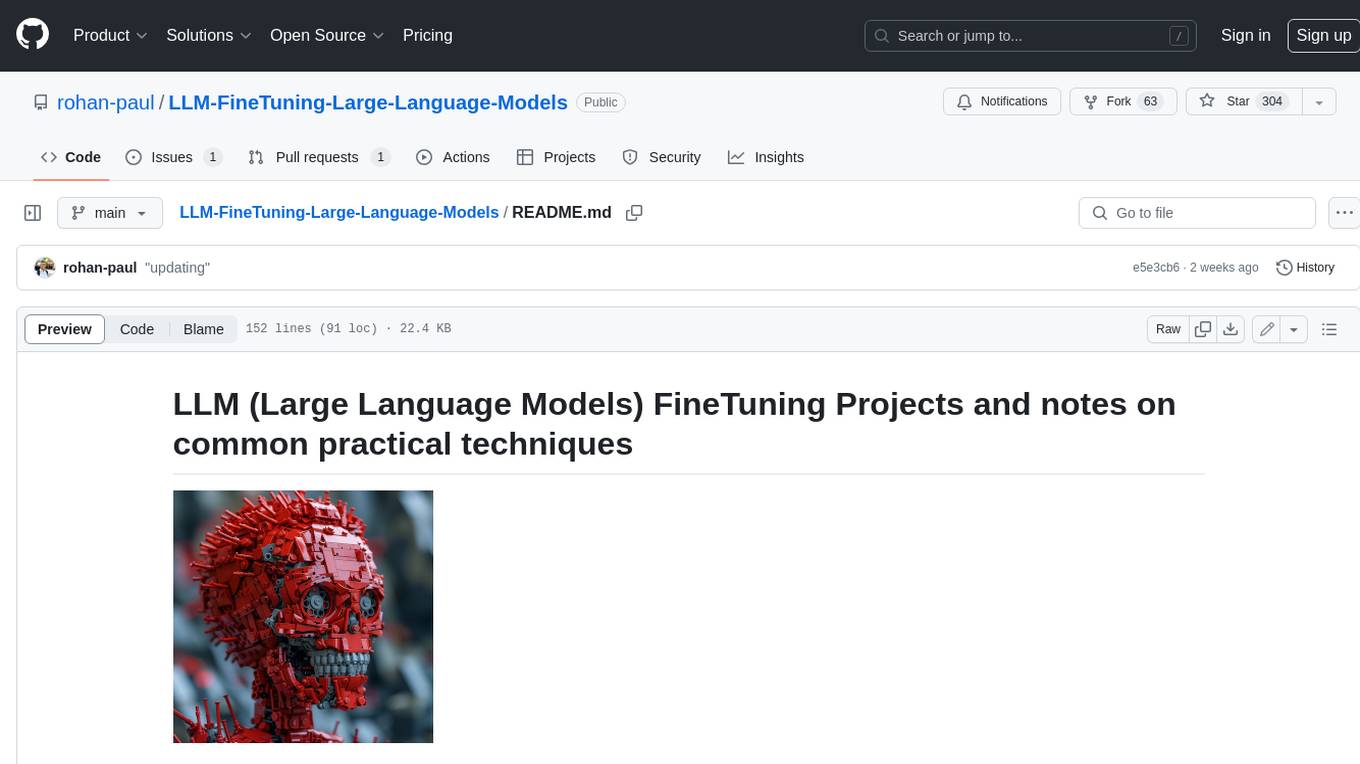
LLM-FineTuning-Large-Language-Models
This repository contains projects and notes on common practical techniques for fine-tuning Large Language Models (LLMs). It includes fine-tuning LLM notebooks, Colab links, LLM techniques and utils, and other smaller language models. The repository also provides links to YouTube videos explaining the concepts and techniques discussed in the notebooks.
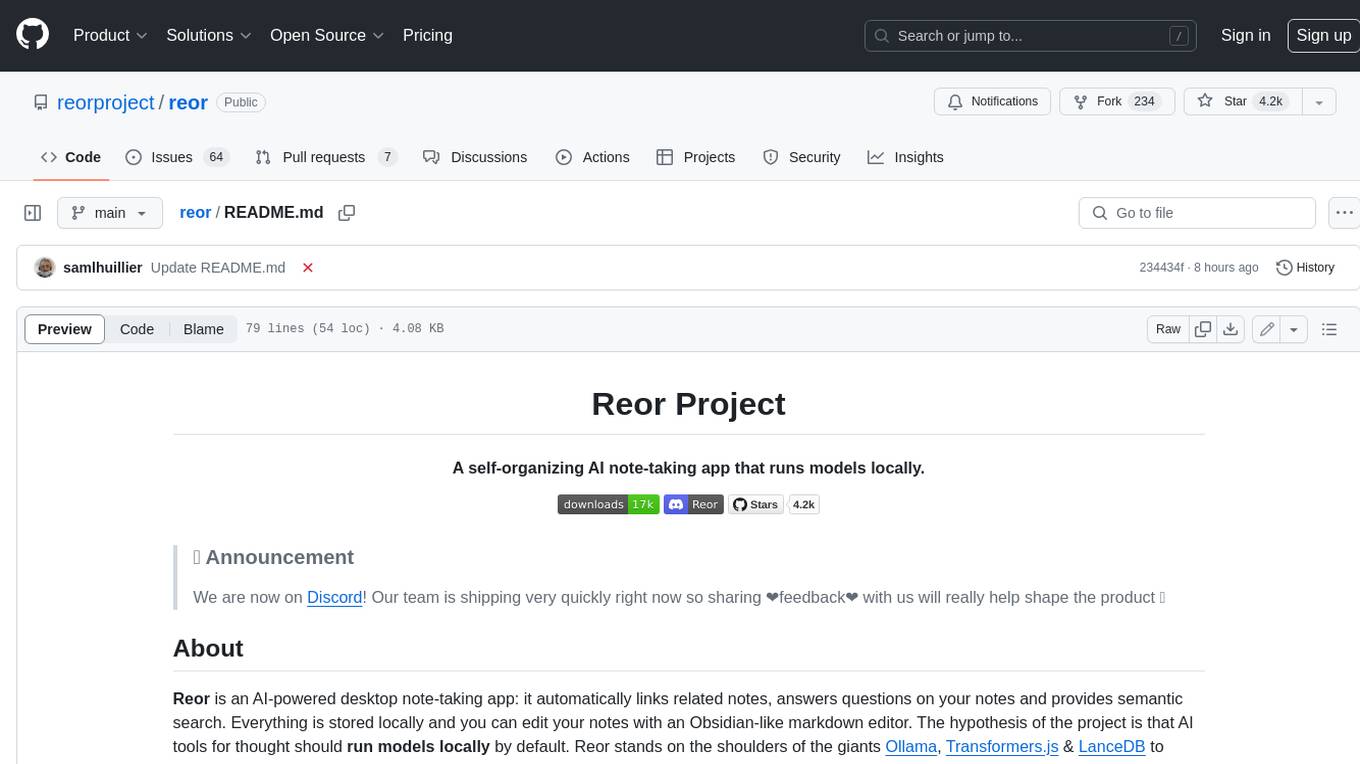
reor
Reor is an AI-powered desktop note-taking app that automatically links related notes, answers questions on your notes, and provides semantic search. Everything is stored locally and you can edit your notes with an Obsidian-like markdown editor. The hypothesis of the project is that AI tools for thought should run models locally by default. Reor stands on the shoulders of the giants Ollama, Transformers.js & LanceDB to enable both LLMs and embedding models to run locally. Connecting to OpenAI or OpenAI-compatible APIs like Oobabooga is also supported.
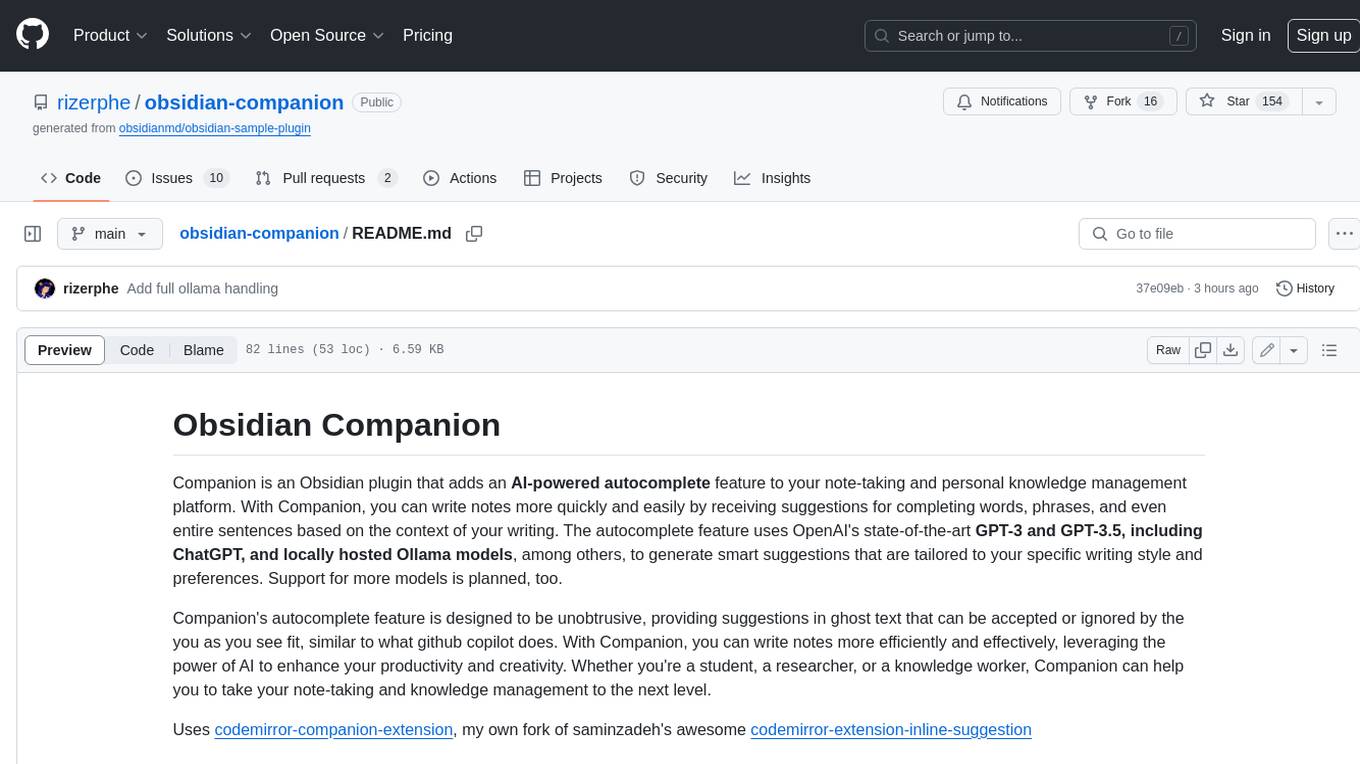
obsidian-companion
Companion is an Obsidian plugin that adds an AI-powered autocomplete feature to your note-taking and personal knowledge management platform. With Companion, you can write notes more quickly and easily by receiving suggestions for completing words, phrases, and even entire sentences based on the context of your writing. The autocomplete feature uses OpenAI's state-of-the-art GPT-3 and GPT-3.5, including ChatGPT, and locally hosted Ollama models, among others, to generate smart suggestions that are tailored to your specific writing style and preferences. Support for more models is planned, too.
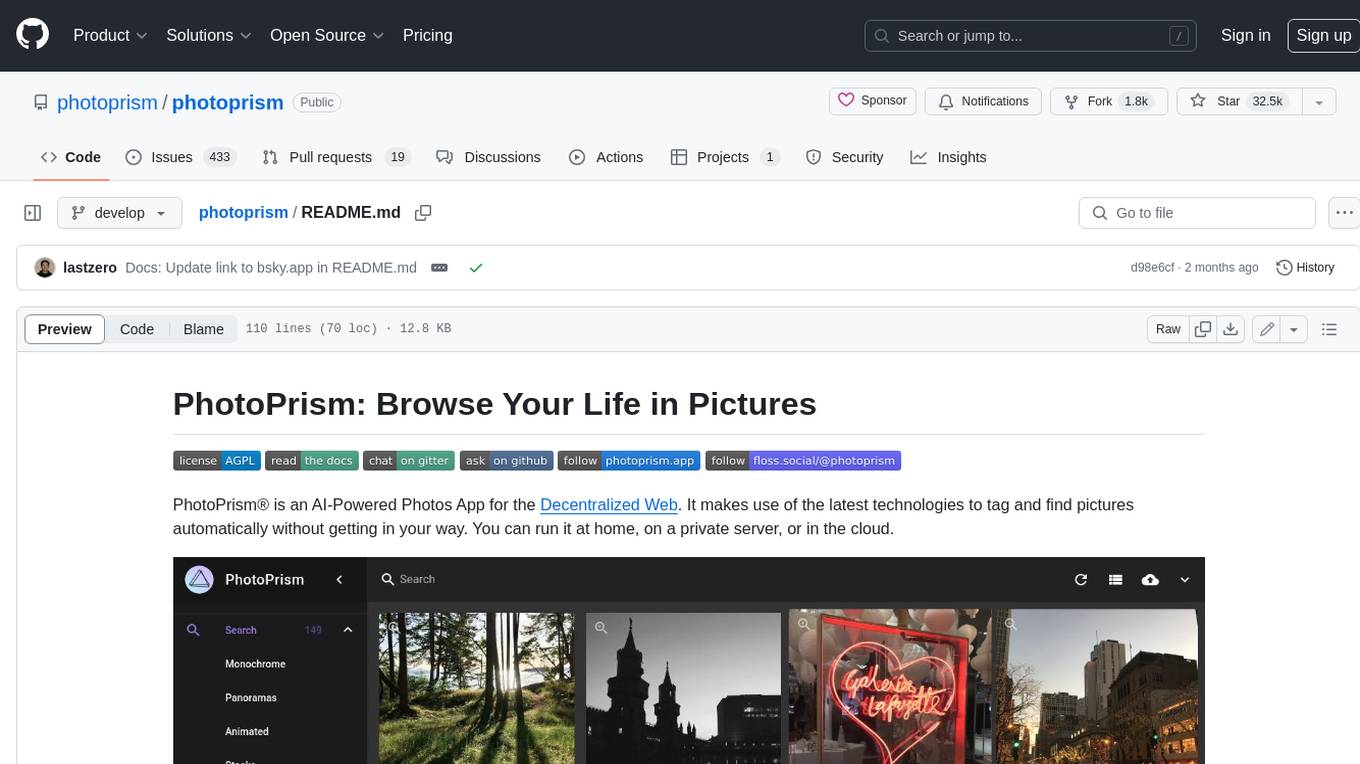
photoprism
PhotoPrism is an AI-powered photos app for the decentralized web. It uses the latest technologies to tag and find pictures automatically without getting in your way. You can run it at home, on a private server, or in the cloud.
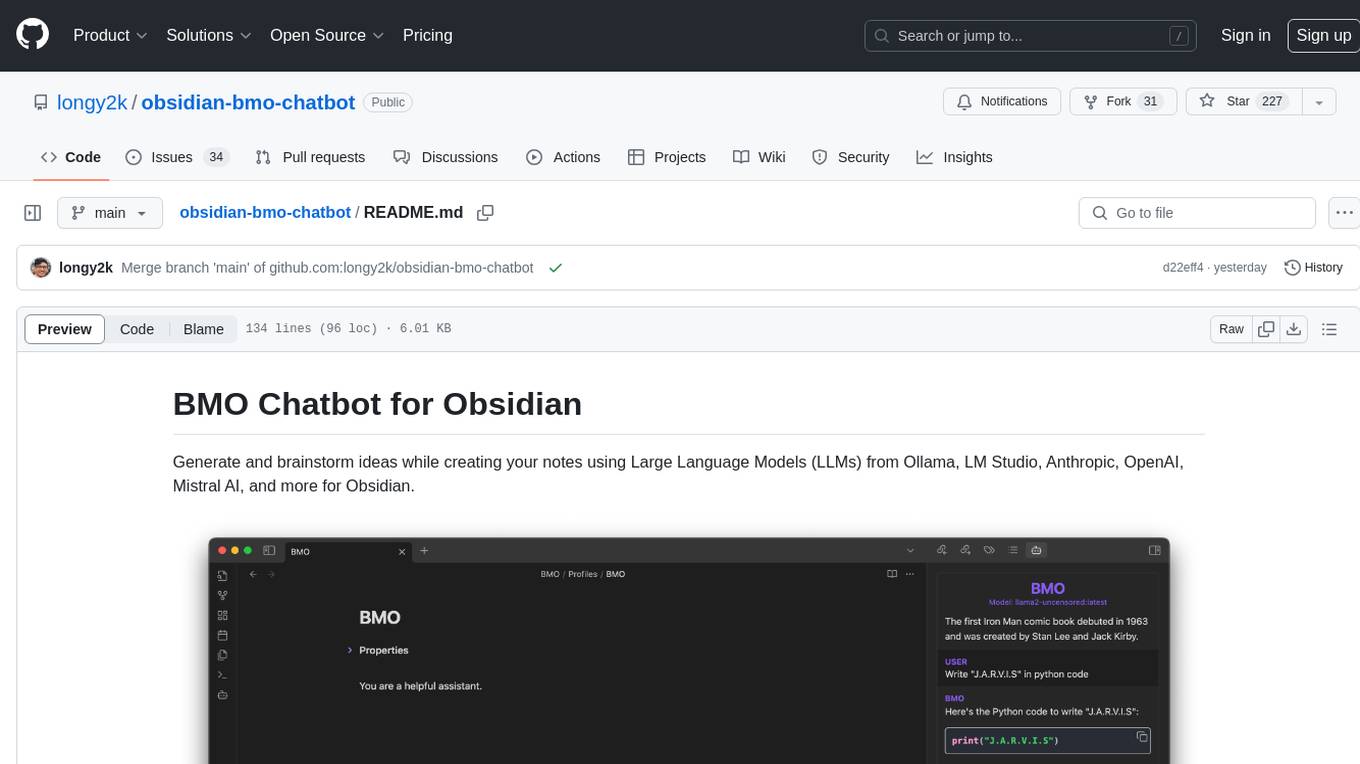
obsidian-bmo-chatbot
Obsidian BMO Chatbot is a plugin that allows users to generate and brainstorm ideas while creating notes using Large Language Models (LLMs) from various providers like Ollama, LM Studio, Anthropic, OpenAI, Mistral AI, and more. Users can interact with self-hosted LLMs, create chatbots with specific knowledge and personalities, chat from anywhere within Obsidian, and receive formatted responses in Obsidian Markdown. The plugin also offers features like customizable bot name, prompt selection, saving chat history as markdown, and more. Users can activate the plugin through Obsidian Community plugins or by installing it manually. Supported models include Ollama, LM Studio, Anthropic, Mistral AI, Google Gemini Pro, OpenAI, and Openrouter provided models.
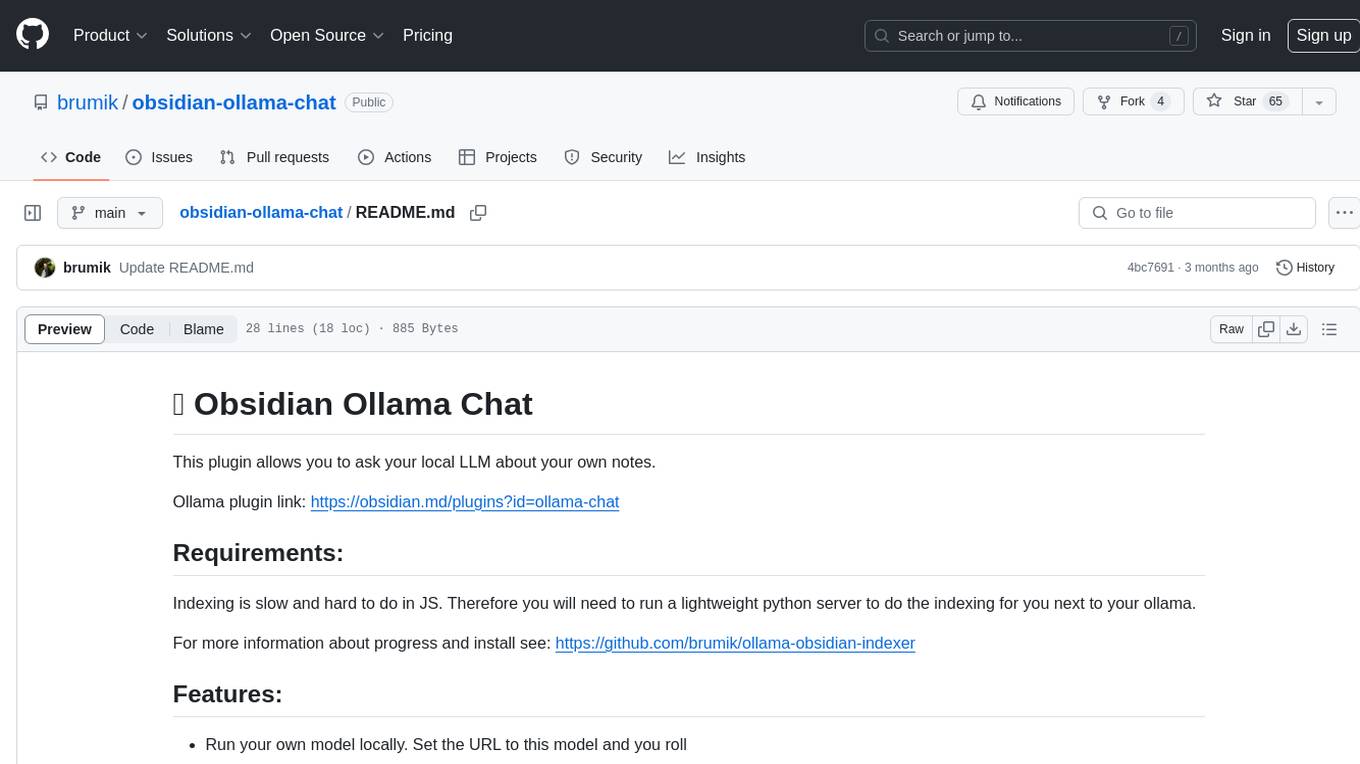
obsidian-ollama-chat
Obsidian Ollama Chat is a plugin that enables users to interact with their local LLM (Large Language Model) to ask questions about their own notes. The plugin facilitates running a lightweight python server for indexing notes, allowing users to set a model URL, index files on startup and modification, and open a modal to ask questions. Future plans include text streaming for querying, a chat window for communication, and commands for quick queries like summarizing notes or topics.
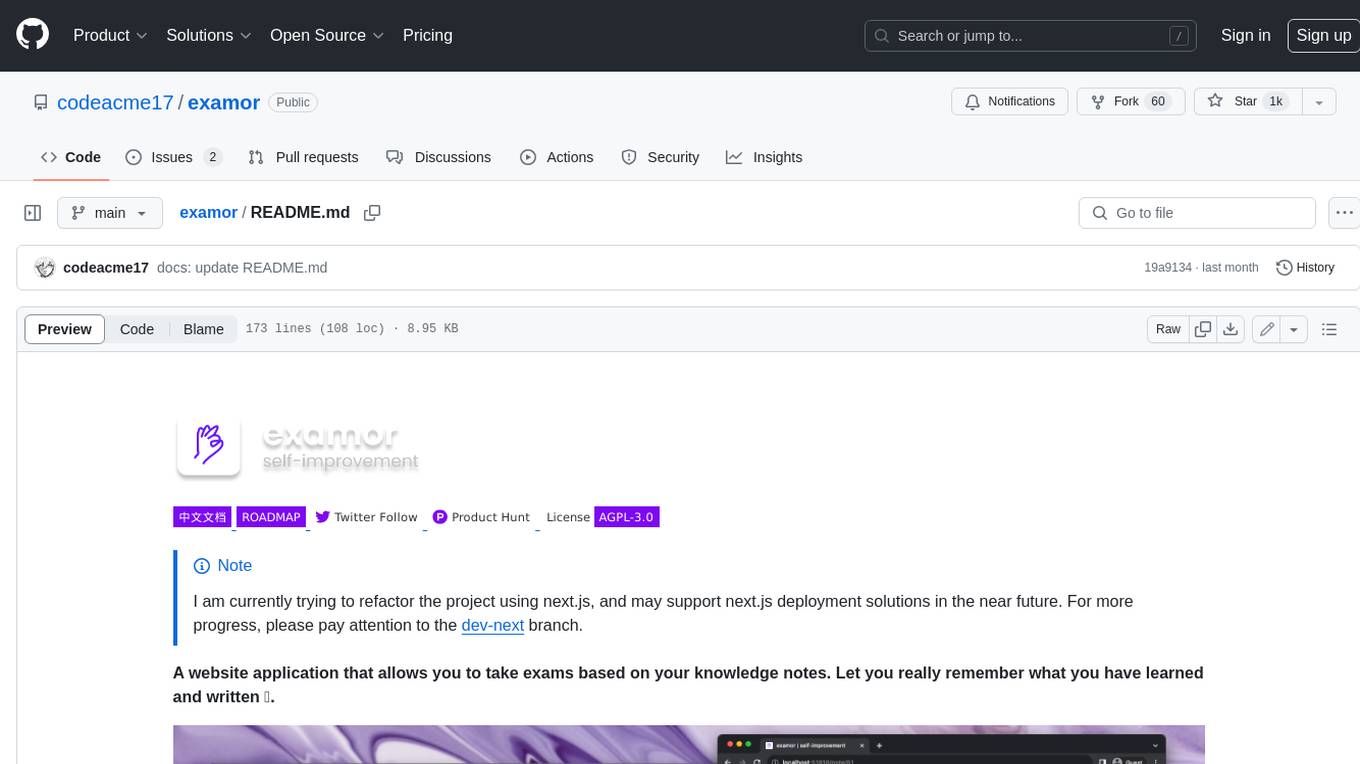
examor
Examor is a website application that allows you to take exams based on your knowledge notes. It helps you to remember what you have learned and written. The application generates a set of questions from the documents you upload, and you can answer them to test your knowledge. Examor also uses GPT to score and validate your answers, and provides you with feedback. The application is still in its early stages of development, but it has the potential to be a valuable tool for learners.
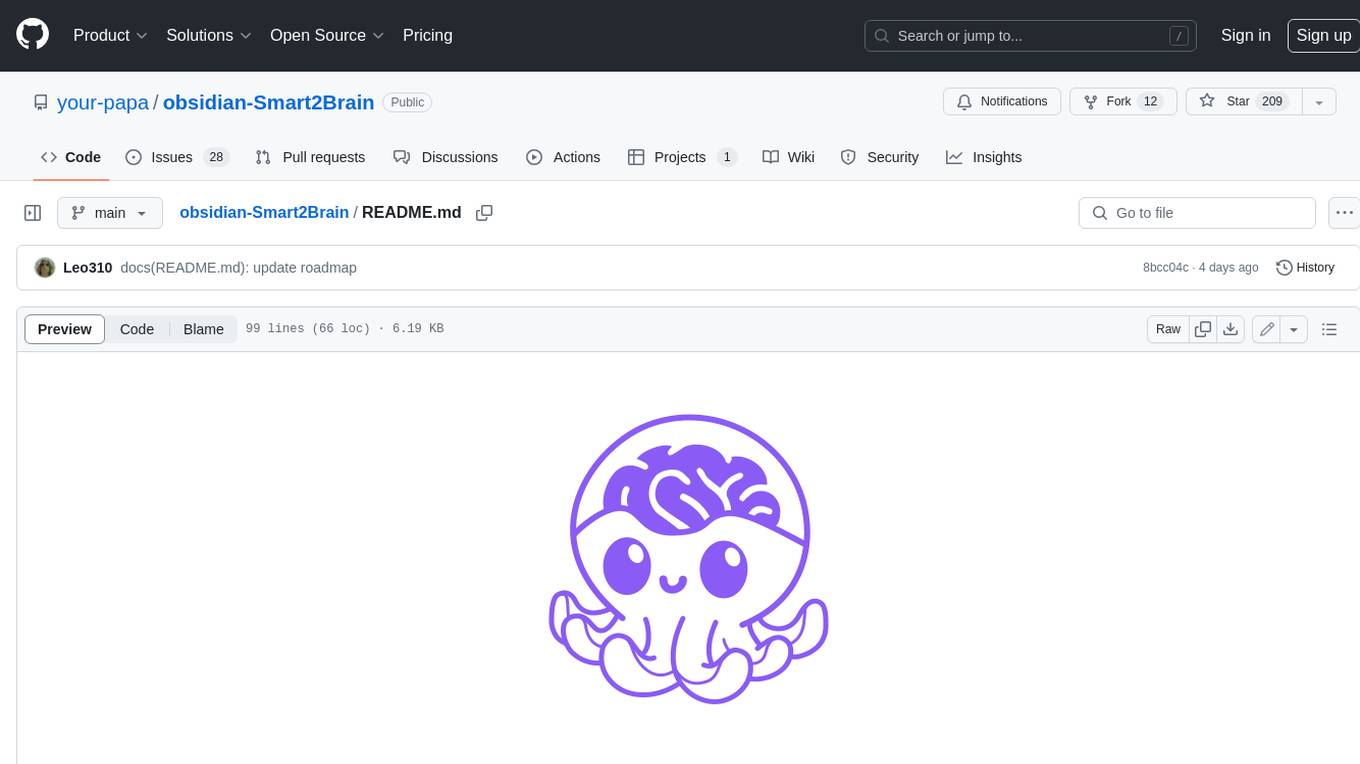
obsidian-Smart2Brain
Your Smart Second Brain is a free and open-source Obsidian plugin that serves as your personal assistant, powered by large language models like ChatGPT or Llama2. It can directly access and process your notes, eliminating the need for manual prompt editing, and it can operate completely offline, ensuring your data remains private and secure.
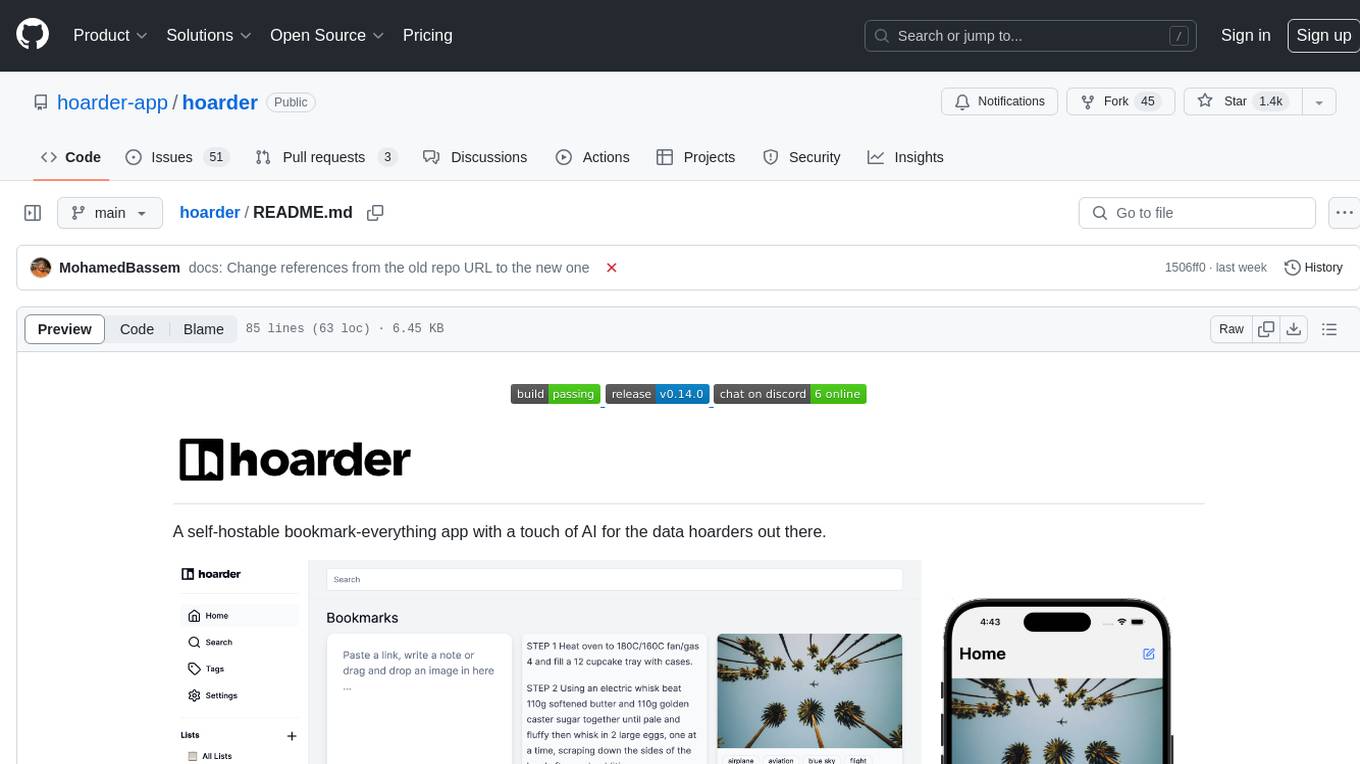
hoarder
A self-hostable bookmark-everything app with a touch of AI for data hoarders. Features include bookmarking links, taking notes, storing images, automatic fetching for link details, full-text search, AI-based automatic tagging, Chrome and Firefox plugins, iOS and Android apps, dark mode support, and self-hosting. Built to address the need for archiving and previewing links with automatic tagging. Developed by a systems engineer to stay connected with web development and cater to personal use cases.
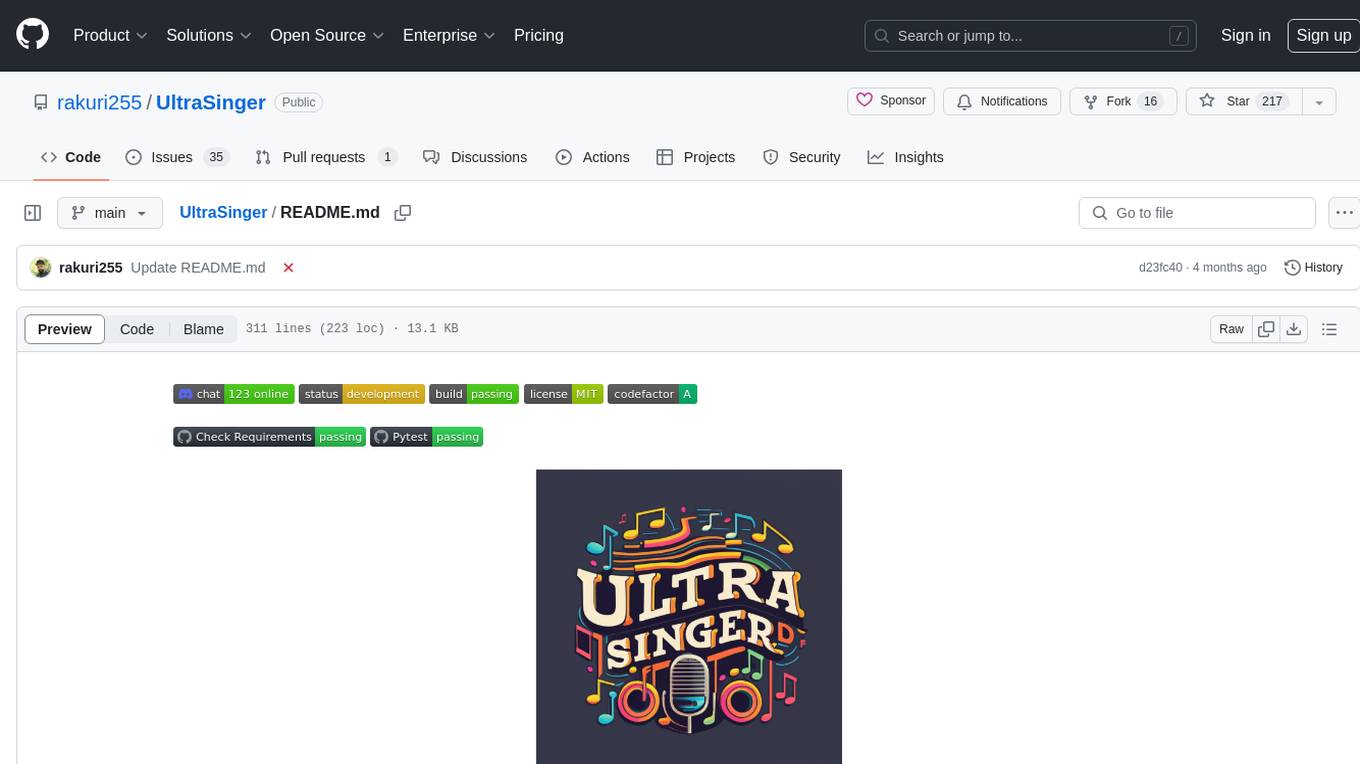
UltraSinger
UltraSinger is a tool under development that automatically creates UltraStar.txt, midi, and notes from music. It pitches UltraStar files, adds text and tapping, creates separate UltraStar karaoke files, re-pitches current UltraStar files, and calculates in-game score. It uses multiple AI models to extract text from voice and determine pitch. Users should mention UltraSinger in UltraStar.txt files and only use it on Creative Commons licensed songs.
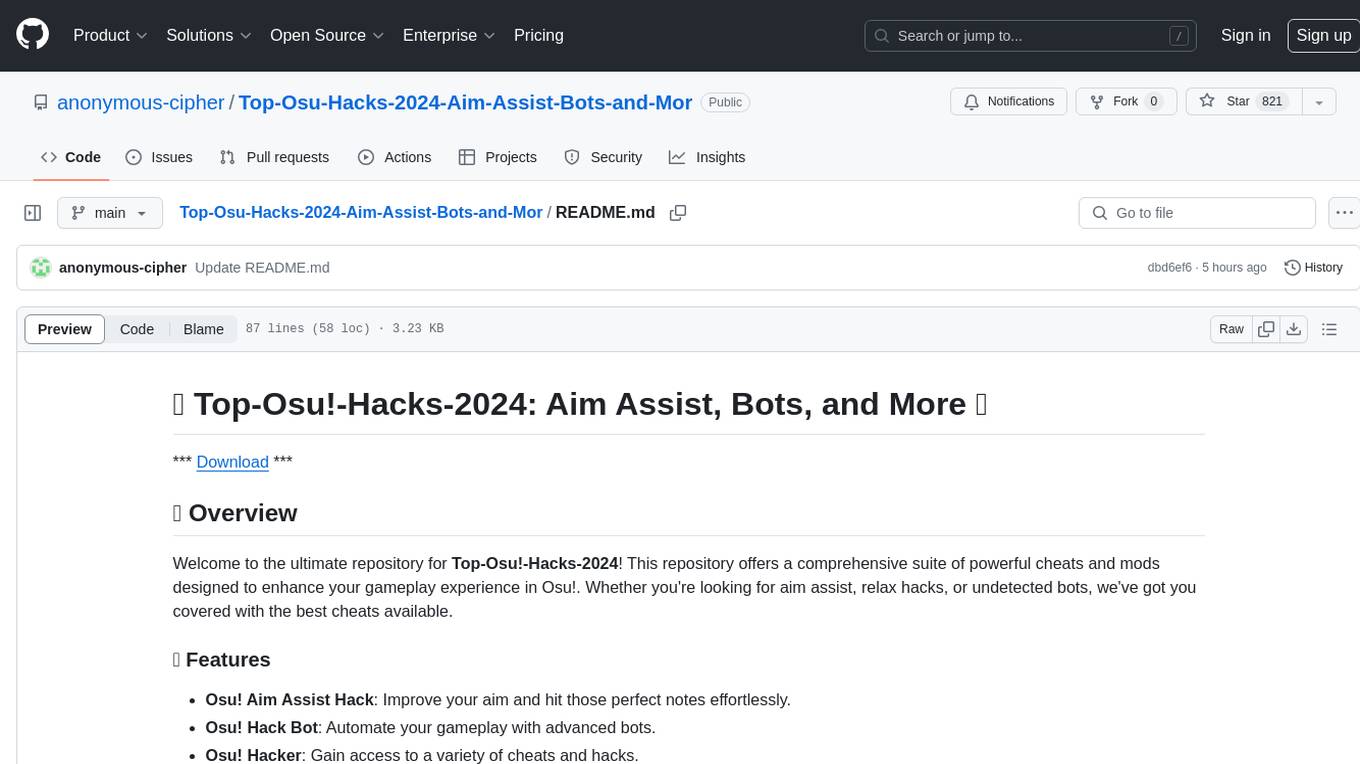
Top-Osu-Hacks-2024-Aim-Assist-Bots-and-Mor
The Top-Osu!-Hacks-2024 repository offers a comprehensive suite of powerful cheats and mods designed to enhance gameplay experience in Osu!. It provides aim assist hacks, bots, and various cheats to improve gameplay. Users can easily download and install the cheats to automate gameplay, improve aim accuracy, and play with relaxed settings. The repository is optimized for search engines using targeted keywords and meta descriptions to help players find Osu! hacks easily.
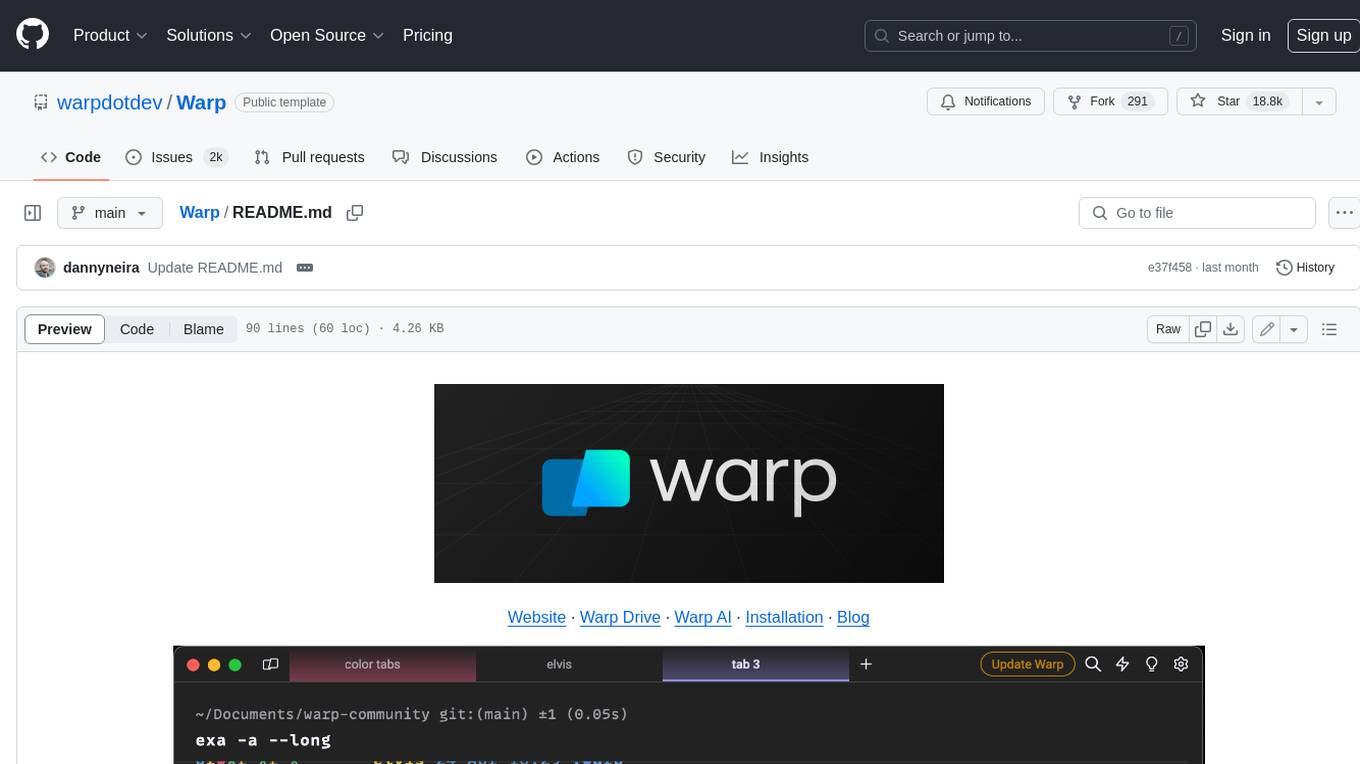
Warp
Warp is a blazingly-fast modern Rust based GPU-accelerated terminal built to make you and your team more productive. It is available for macOS and Linux users, with plans to support Windows and the Web (WASM) in the future. Warp has a community search page where you can find solutions to common issues, and you can file issue requests in the repo if you can't find a solution. Warp is open-source, and the team is planning to first open-source their Rust UI framework, and then parts and potentially all of their client codebase.
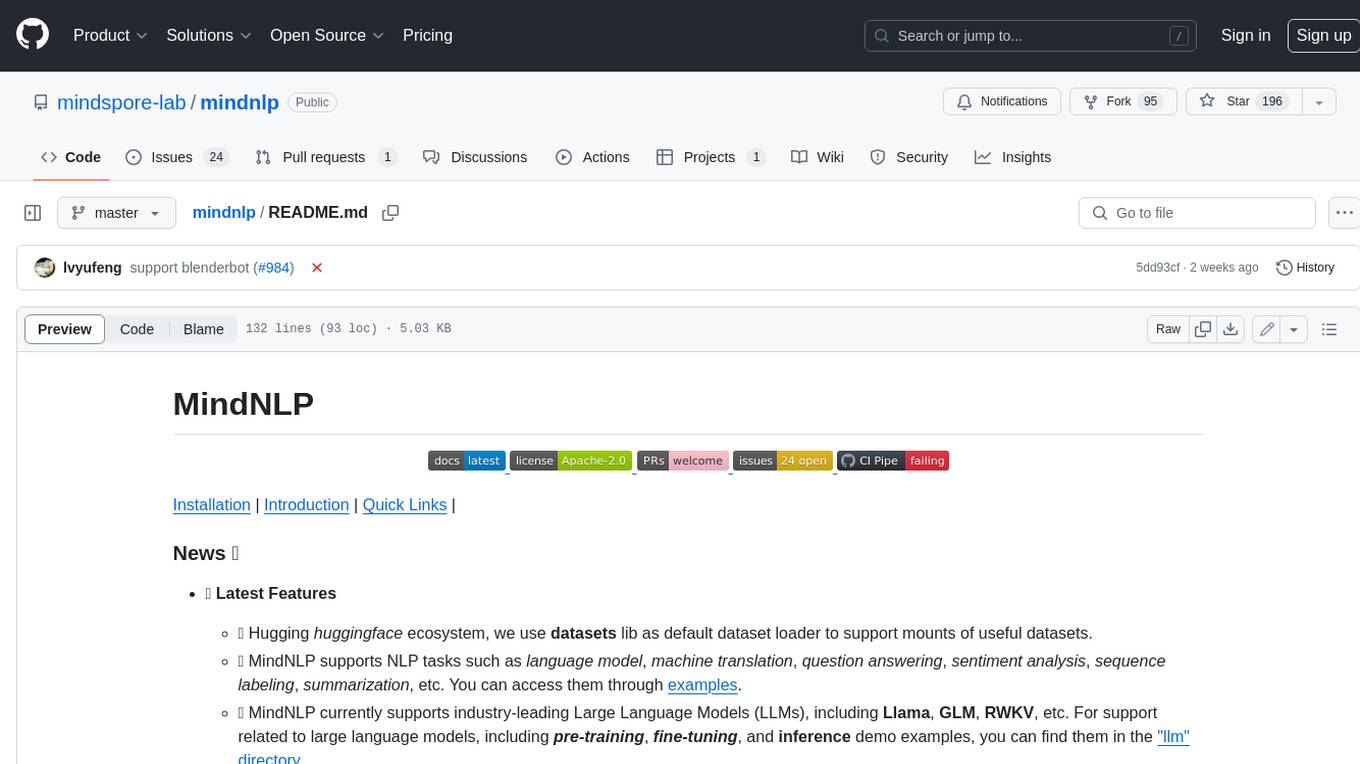
mindnlp
MindNLP is an open-source NLP library based on MindSpore. It provides a platform for solving natural language processing tasks, containing many common approaches in NLP. It can help researchers and developers to construct and train models more conveniently and rapidly. Key features of MindNLP include: * Comprehensive data processing: Several classical NLP datasets are packaged into a friendly module for easy use, such as Multi30k, SQuAD, CoNLL, etc. * Friendly NLP model toolset: MindNLP provides various configurable components. It is friendly to customize models using MindNLP. * Easy-to-use engine: MindNLP simplified complicated training process in MindSpore. It supports Trainer and Evaluator interfaces to train and evaluate models easily. MindNLP supports a wide range of NLP tasks, including: * Language modeling * Machine translation * Question answering * Sentiment analysis * Sequence labeling * Summarization MindNLP also supports industry-leading Large Language Models (LLMs), including Llama, GLM, RWKV, etc. For support related to large language models, including pre-training, fine-tuning, and inference demo examples, you can find them in the "llm" directory. To install MindNLP, you can either install it from Pypi, download the daily build wheel, or install it from source. The installation instructions are provided in the documentation. MindNLP is released under the Apache 2.0 license. If you find this project useful in your research, please consider citing the following paper: @misc{mindnlp2022, title={{MindNLP}: a MindSpore NLP library}, author={MindNLP Contributors}, howpublished = {\url{https://github.com/mindlab-ai/mindnlp}}, year={2022} }
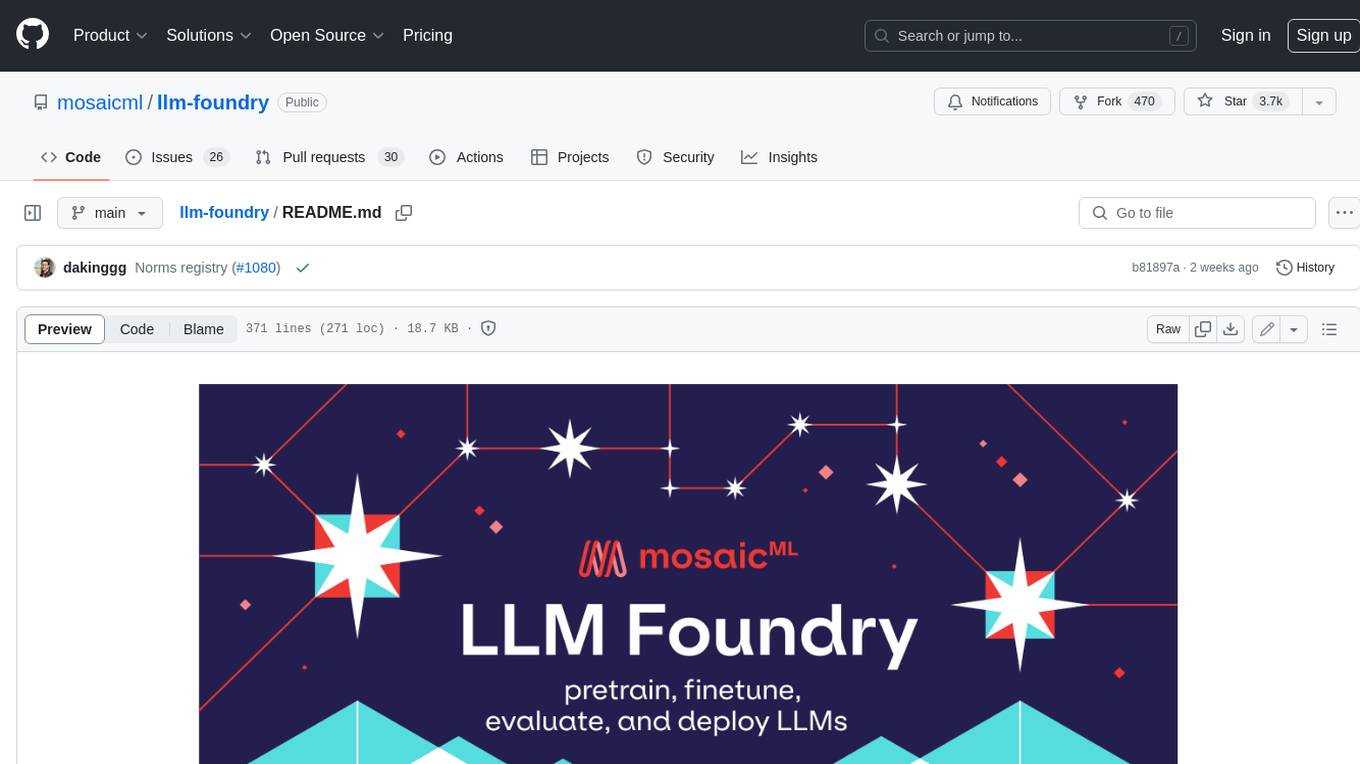
llm-foundry
LLM Foundry is a codebase for training, finetuning, evaluating, and deploying LLMs for inference with Composer and the MosaicML platform. It is designed to be easy-to-use, efficient _and_ flexible, enabling rapid experimentation with the latest techniques. You'll find in this repo: * `llmfoundry/` - source code for models, datasets, callbacks, utilities, etc. * `scripts/` - scripts to run LLM workloads * `data_prep/` - convert text data from original sources to StreamingDataset format * `train/` - train or finetune HuggingFace and MPT models from 125M - 70B parameters * `train/benchmarking` - profile training throughput and MFU * `inference/` - convert models to HuggingFace or ONNX format, and generate responses * `inference/benchmarking` - profile inference latency and throughput * `eval/` - evaluate LLMs on academic (or custom) in-context-learning tasks * `mcli/` - launch any of these workloads using MCLI and the MosaicML platform * `TUTORIAL.md` - a deeper dive into the repo, example workflows, and FAQs
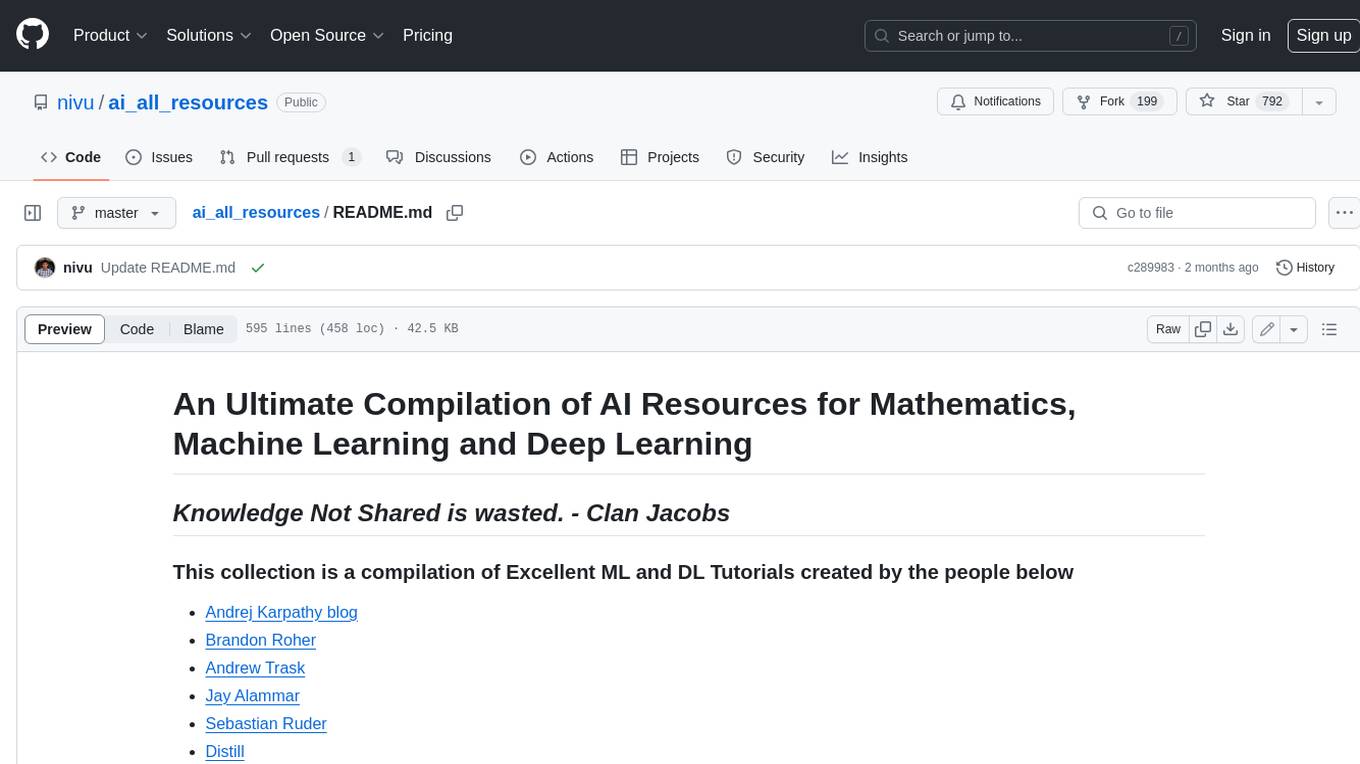
ai_all_resources
This repository is a compilation of excellent ML and DL tutorials created by various individuals and organizations. It covers a wide range of topics, including machine learning fundamentals, deep learning, computer vision, natural language processing, reinforcement learning, and more. The resources are organized into categories, making it easy to find the information you need. Whether you're a beginner or an experienced practitioner, you're sure to find something valuable in this repository.

awesome-ai-tools
Awesome AI Tools is a curated list of popular tools and resources for artificial intelligence enthusiasts. It includes a wide range of tools such as machine learning libraries, deep learning frameworks, data visualization tools, and natural language processing resources. Whether you are a beginner or an experienced AI practitioner, this repository aims to provide you with a comprehensive collection of tools to enhance your AI projects and research. Explore the list to discover new tools, stay updated with the latest advancements in AI technology, and find the right resources to support your AI endeavors.
20 - OpenAI Gpts
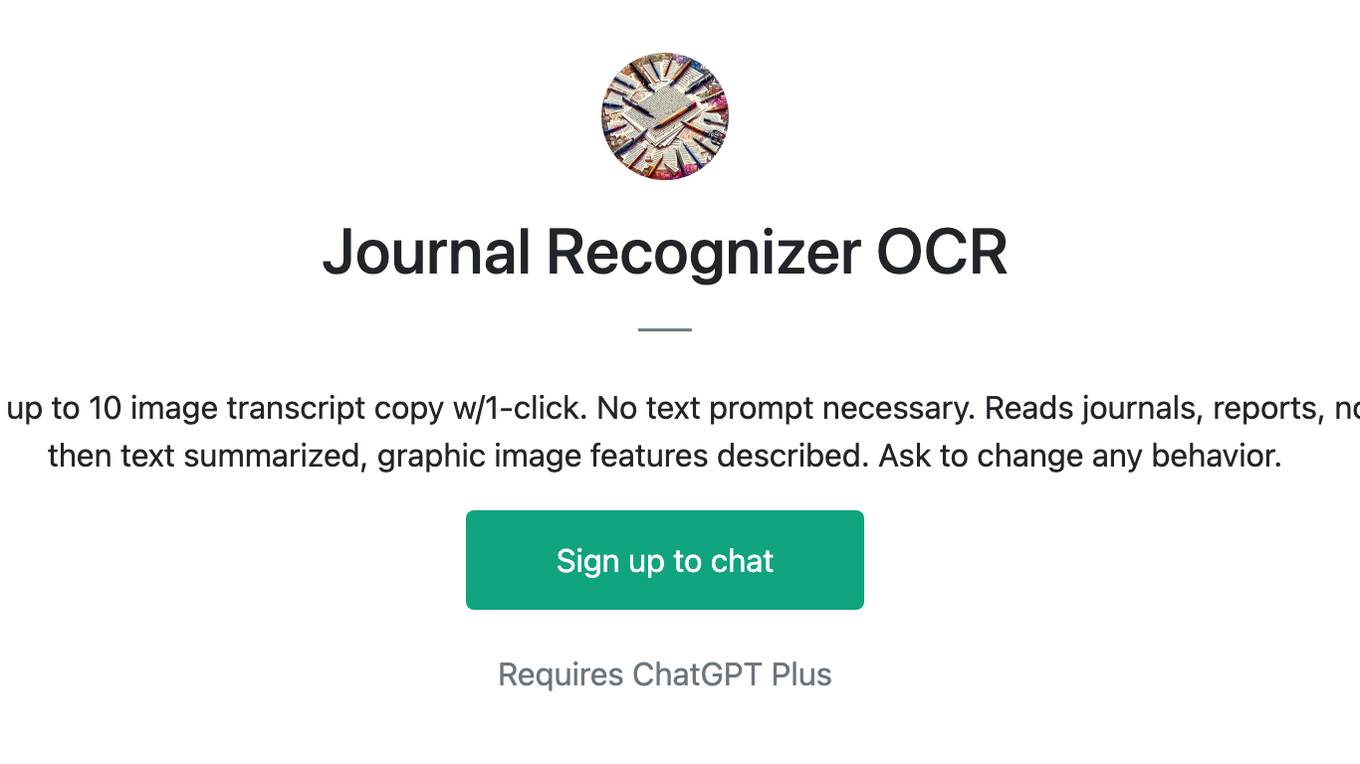
Journal Recognizer OCR
Optimized OCR for Handwritten Notebooks, up to 10 image transcript copy w/1-click. No text prompt necessary. Reads journals, reports, notes. All handwriting transcribed verbatim, then text summarized, graphic image features described. Ask to change any behavior.
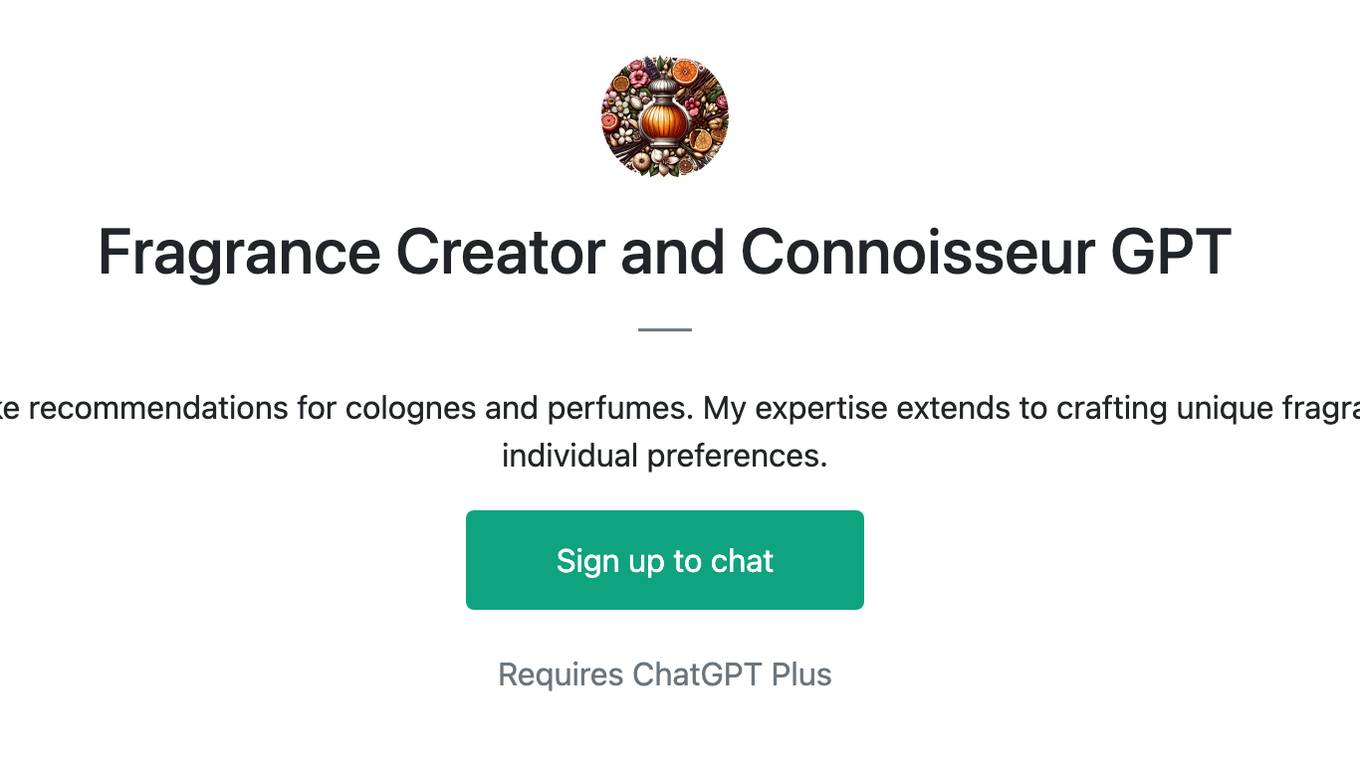
Fragrance Creator and Connoisseur GPT
I am a GPT specialized in providing bespoke recommendations for colognes and perfumes. My expertise extends to crafting unique fragrance creations, tailored to align with your individual preferences.
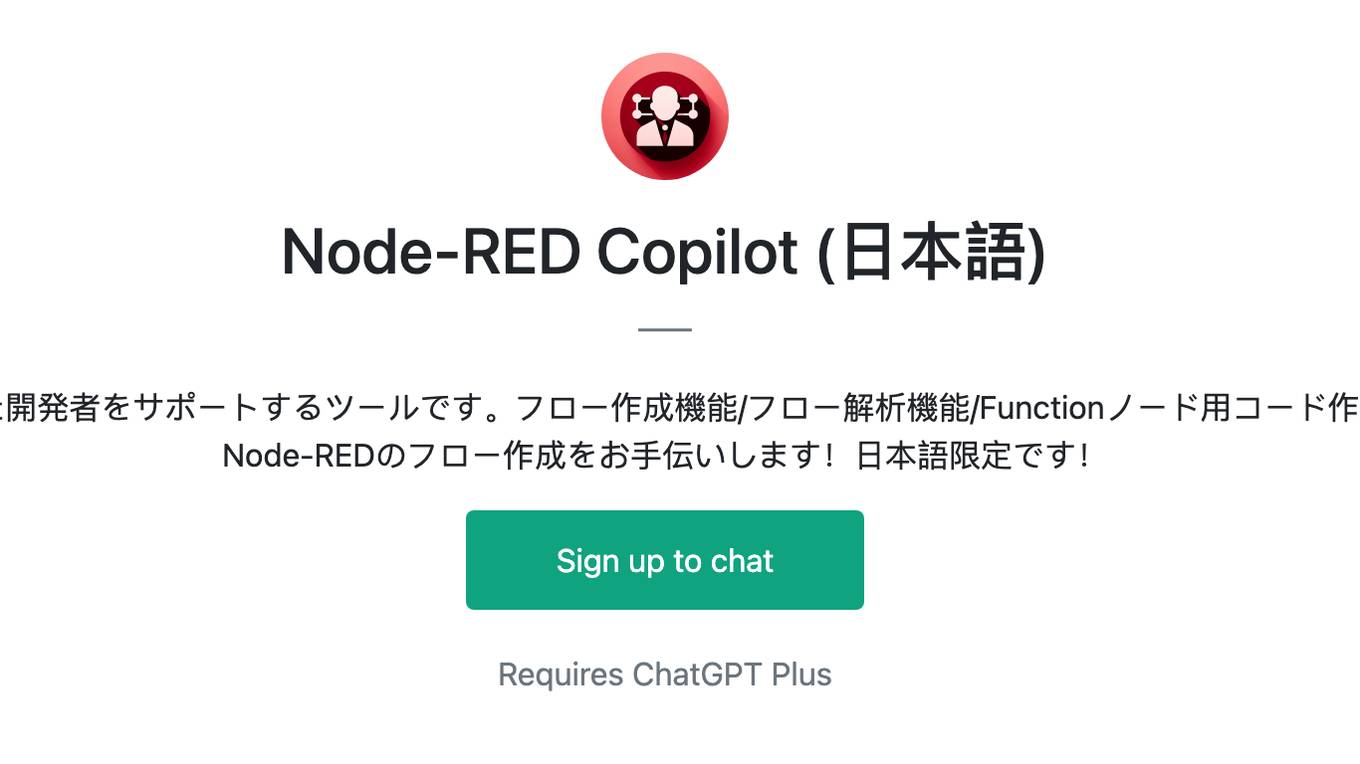
Node-RED Copilot (日本語)
Node-RED Copilot は、Node-REDを使った開発者をサポートするツールです。フロー作成機能/フロー解析機能/Functionノード用コード作成機能/サードパーティノード検索機能でNode-REDのフロー作成をお手伝いします!日本語限定です!
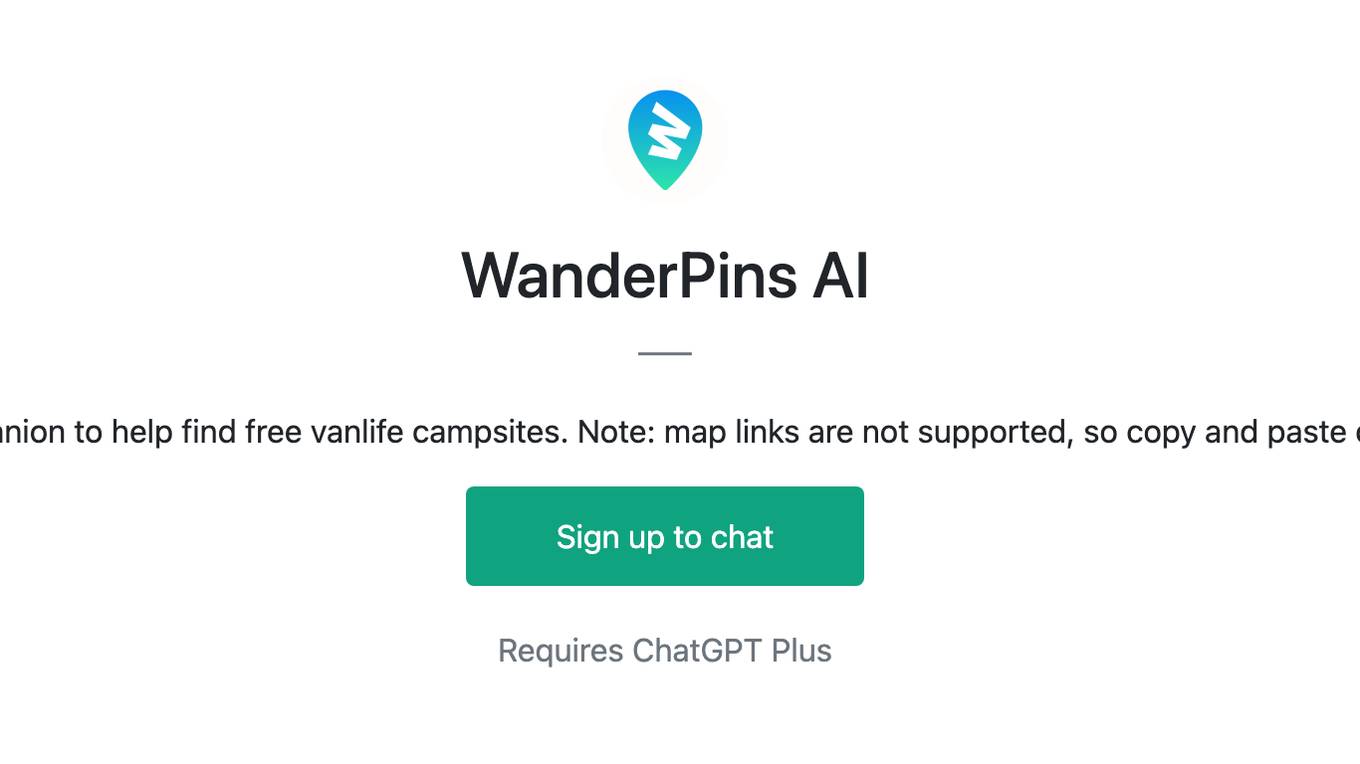
WanderPins AI
Your AI companion to help find free vanlife campsites. Note: map links are not supported, so copy and paste coordinates!
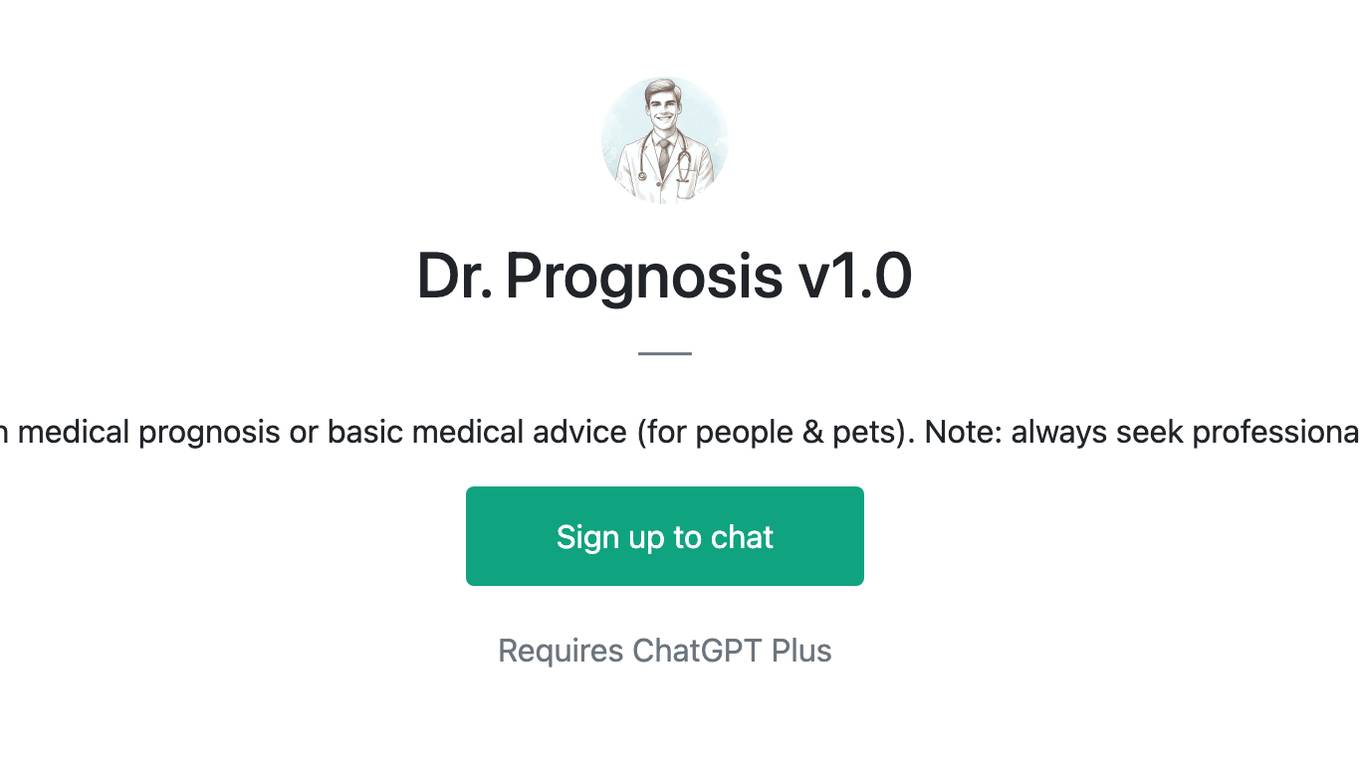
Dr. Prognosis v1.0
Get a rough medical prognosis or basic medical advice (for people & pets). Note: always seek professional opinion.
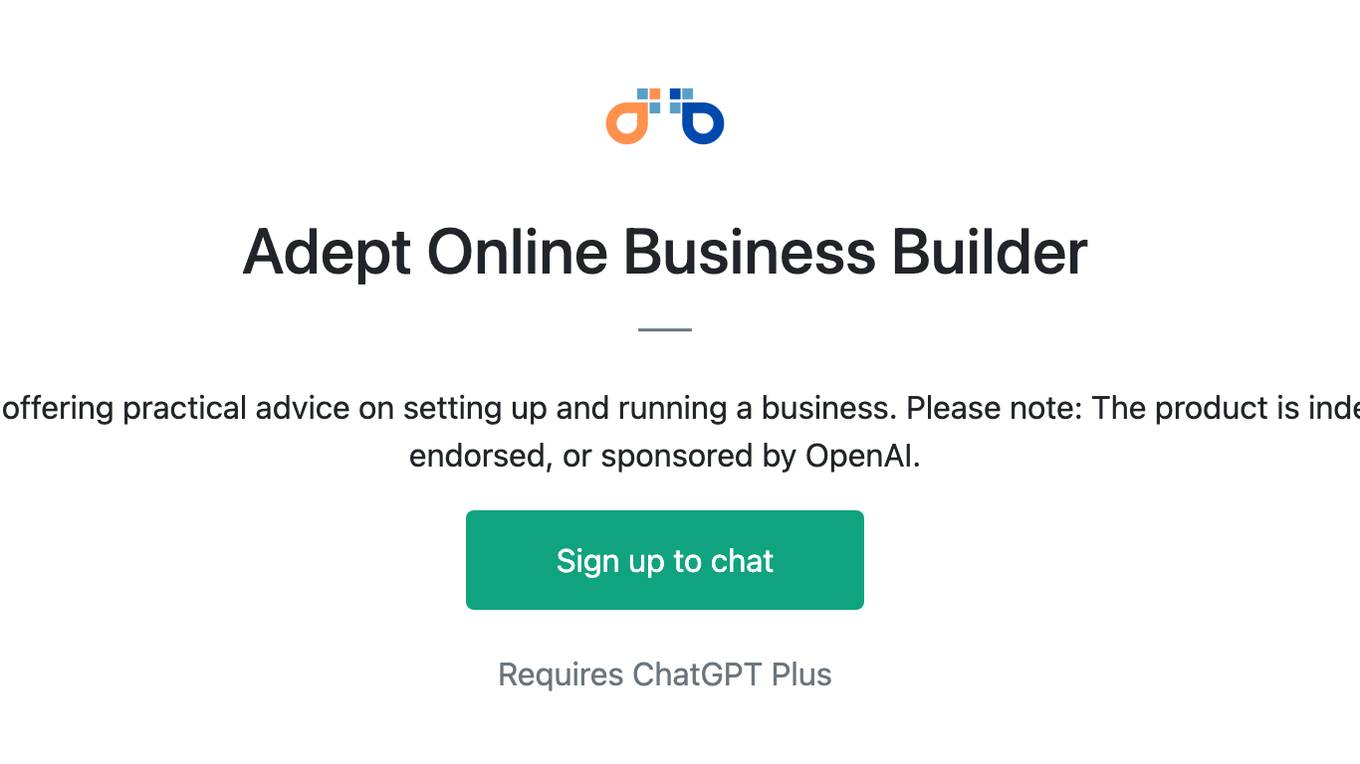
Adept Online Business Builder
A guide for aspiring online entrepreneurs, offering practical advice on setting up and running a business. Please note: The product is independently developed and not affiliated, endorsed, or sponsored by OpenAI.
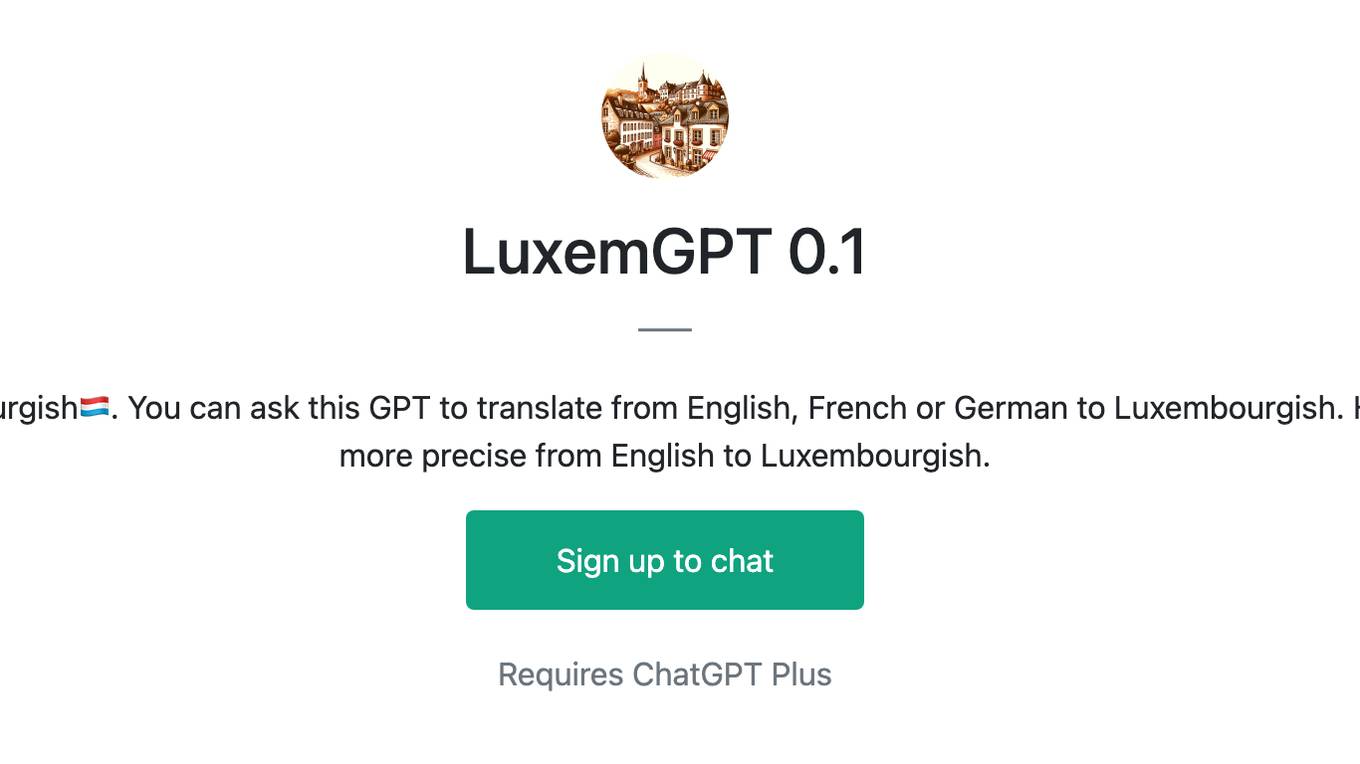
LuxemGPT 0.1
Trying to get a better translator for Luxembourgish🇱🇺. You can ask this GPT to translate from English, French or German to Luxembourgish. However please note that translation will be more precise from English to Luxembourgish.
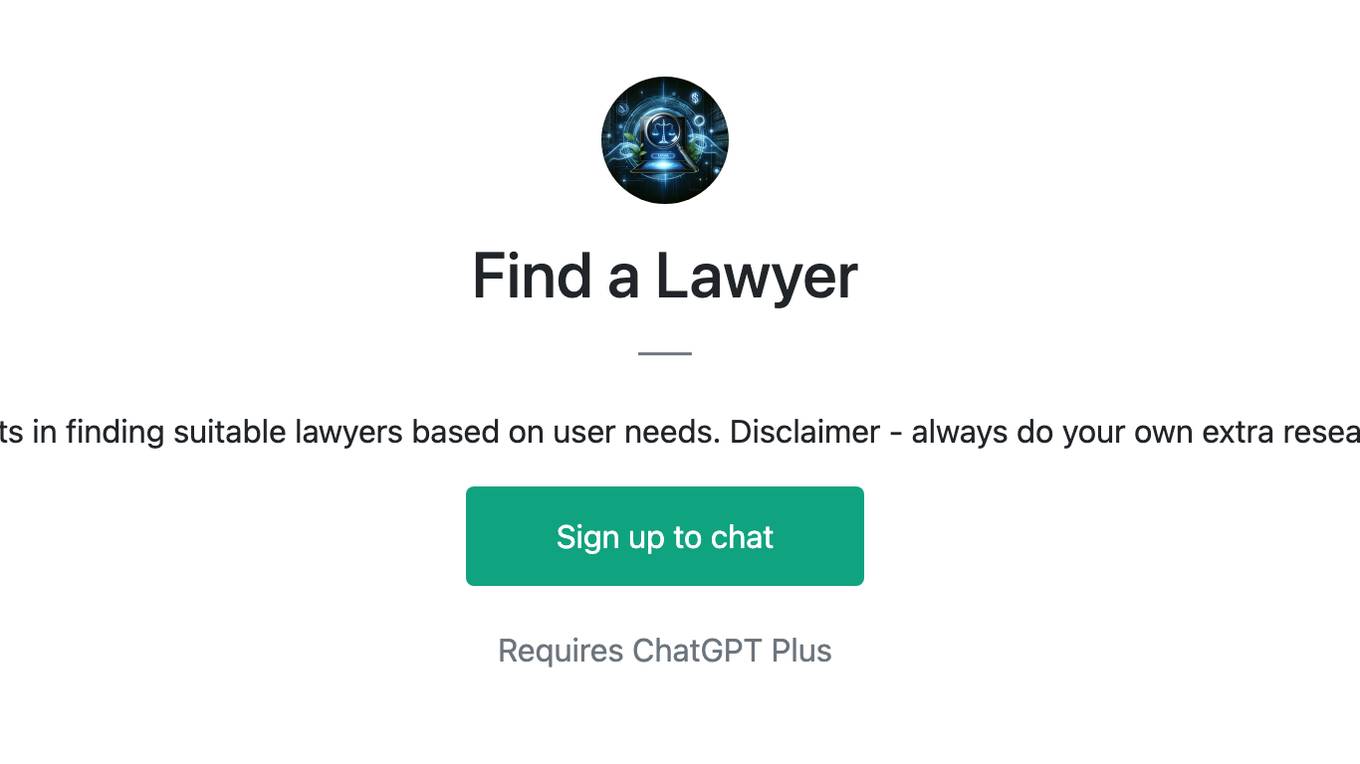
Find a Lawyer
Assists in finding suitable lawyers based on user needs. Disclaimer - always do your own extra research
